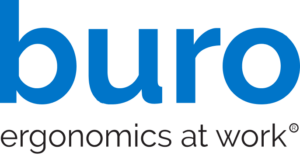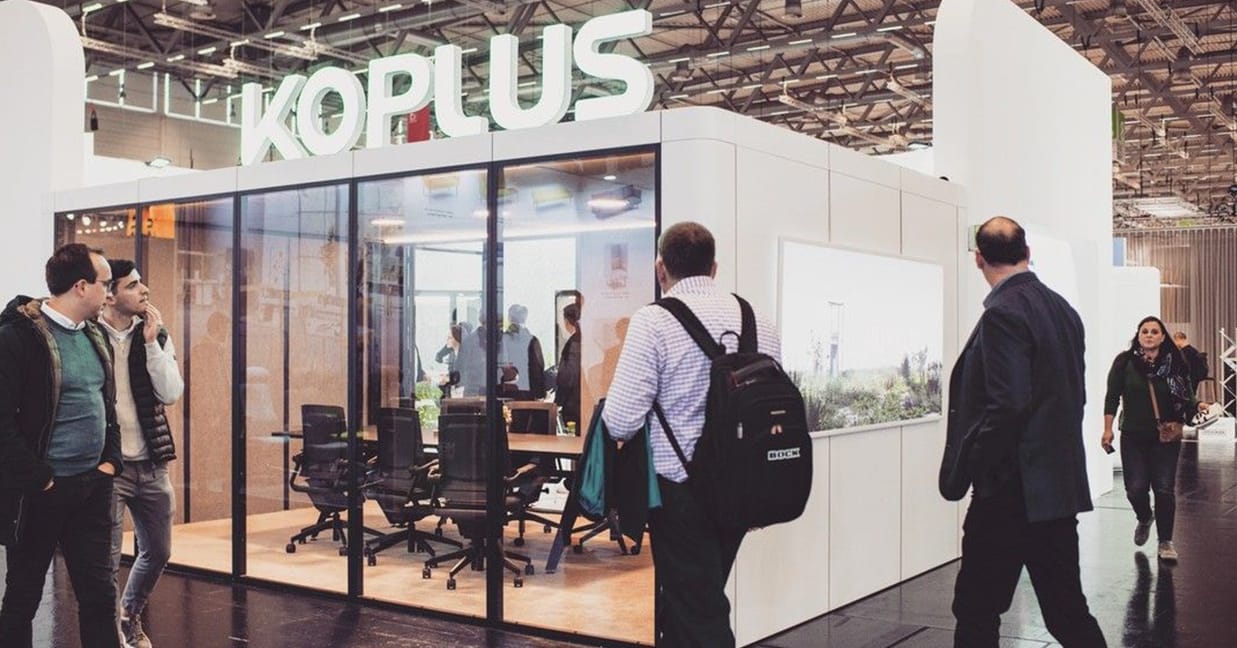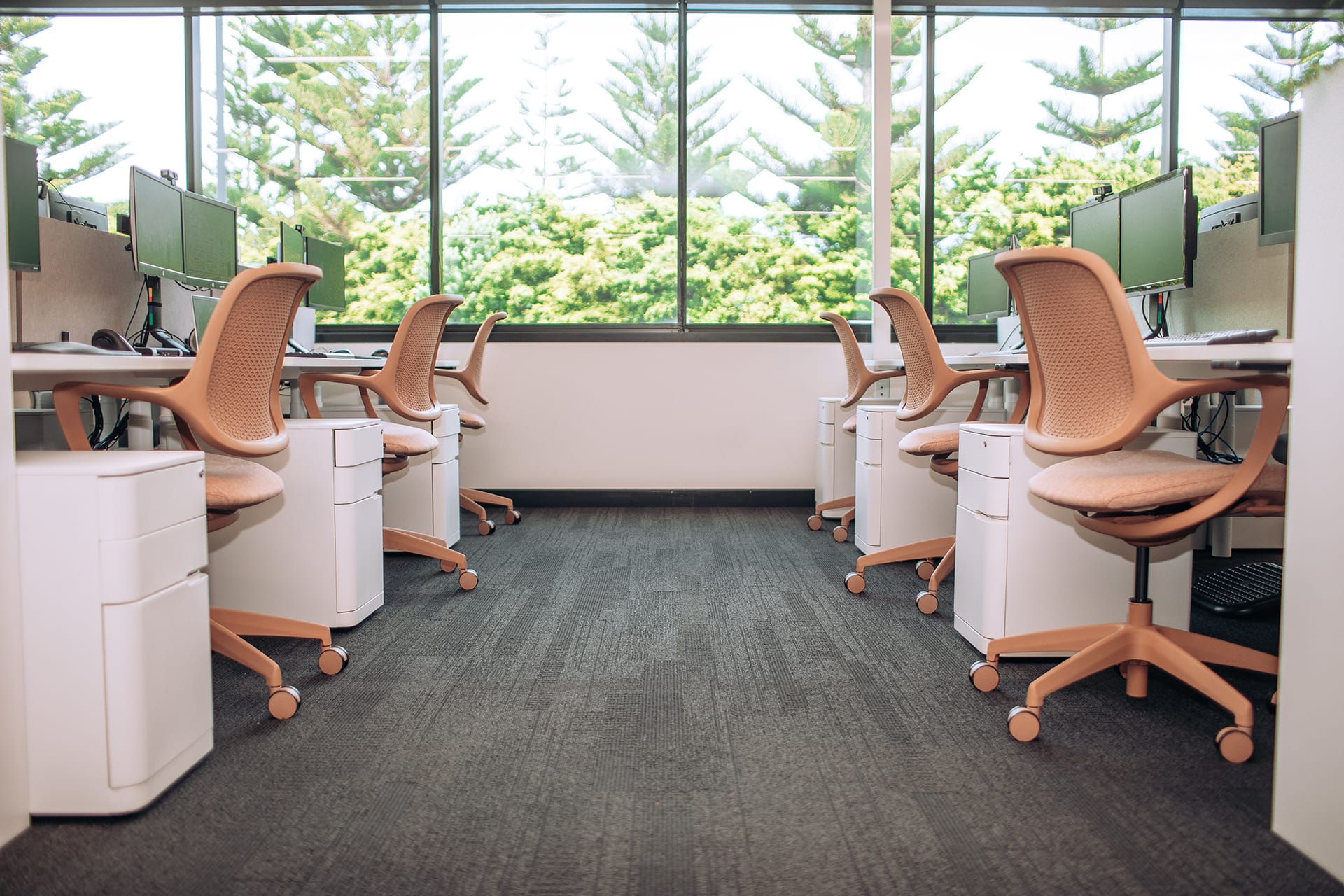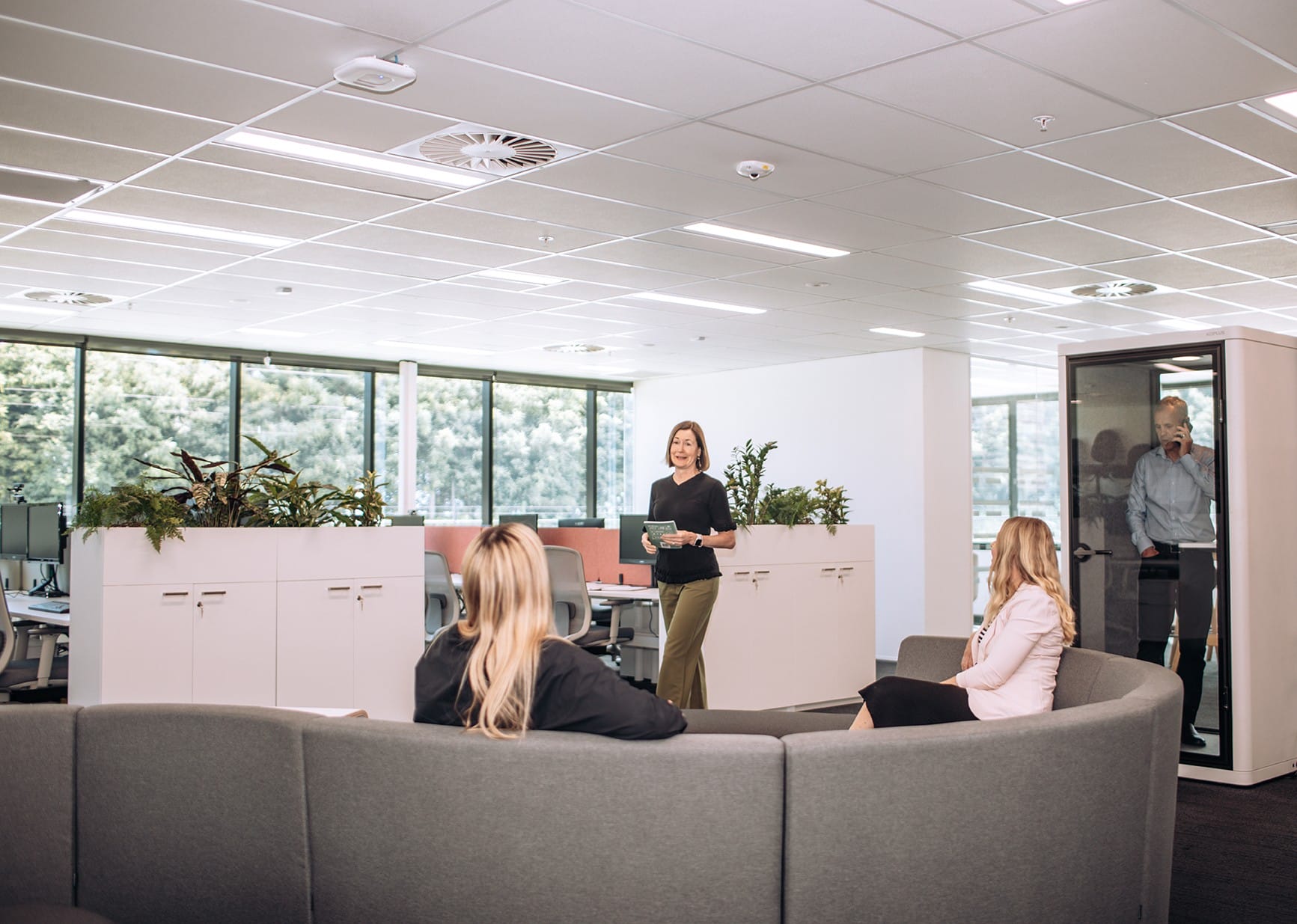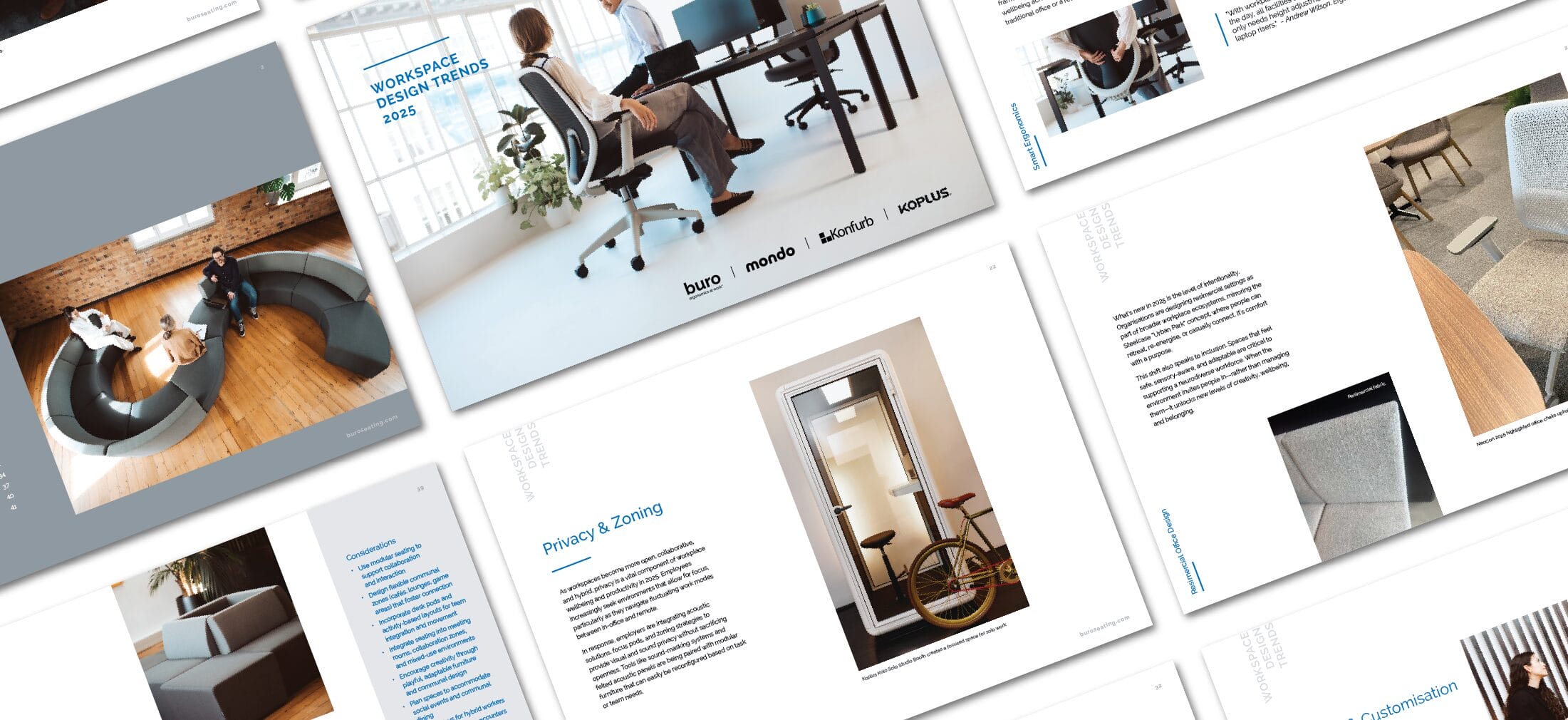The new year invites reflection — it’s a time to look back on what worked (and what didn’t), set intentions, and get excited about the months ahead.
Maybe you’re planning to read more books, finally tackle that long-overdue garage clean-up, or get better at remembering birthdays. In the office furniture world, our focus is a little different. As we step into 2025, we’re completely obsessed with the latest office design trends.
This passion was sparked in October, when we attended ORGATEC — the leading international trade fair for the modern working world — in Cologne, Germany. It was an eye-opening experience, showcasing innovations that will redefine how we work.
Our Product Manager, Adam Tipping, was part of the Buro team that headed off to Europe. With his firsthand insights from ORGATEC 2024, we’ve identified three major trends and three smaller (but still impactful) ones that are set to transform workplaces across Australia.
Let’s start with the big three
1. Collaborative spaces are ready for a makeover
Collaborative spaces have long been a cornerstone of modern office design. By fostering teamwork, creativity, and connection, these areas allow employees to come together, share ideas, and work towards common goals.
Over the years, the concept has evolved from traditional meeting rooms to dynamic environments that cater to a wider range of work styles.
So, what’s in store for 2025? This year, collaborative spaces are getting even smarter.
Expect to see:
- Innovative shapes and configurations that adapt to hybrid working styles, accommodating both focused discussions and larger team gatherings.
- Bleacher-style seating, a versatile and cost-effective solution for modular training sessions or auditorium spaces. These setups are easy to assemble for a presentation or workshop, then packed away just as quickly when the event is over.
The focus is on flexibility and adaptability — creating collaborative zones that aren’t just functional but can also transform at a moment’s notice to meet the changing demands of the workplace. Whether it’s brainstorming sessions, team training, or hybrid meetings, collaborative spaces are at the heart of office design trends in 2025.
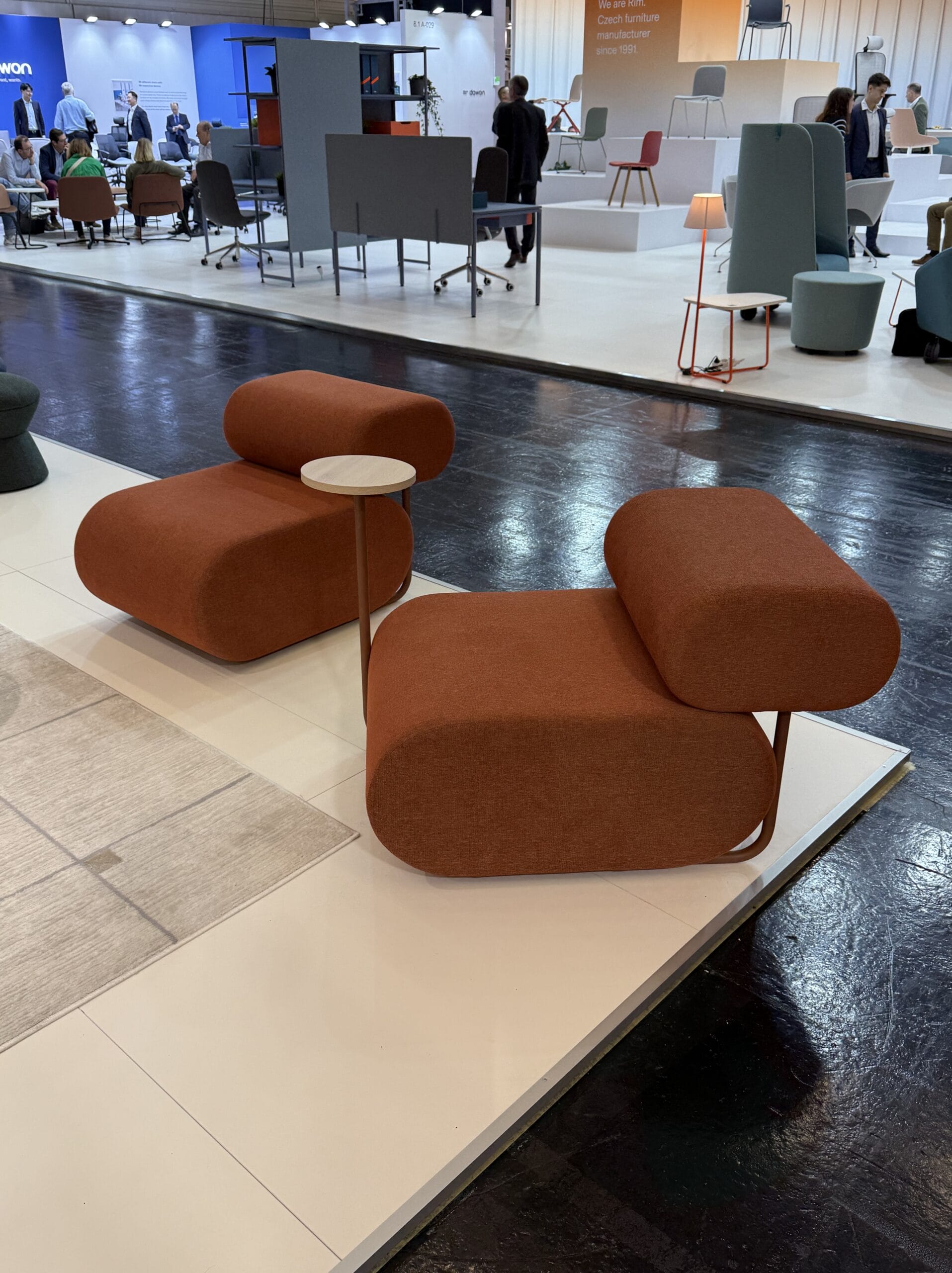
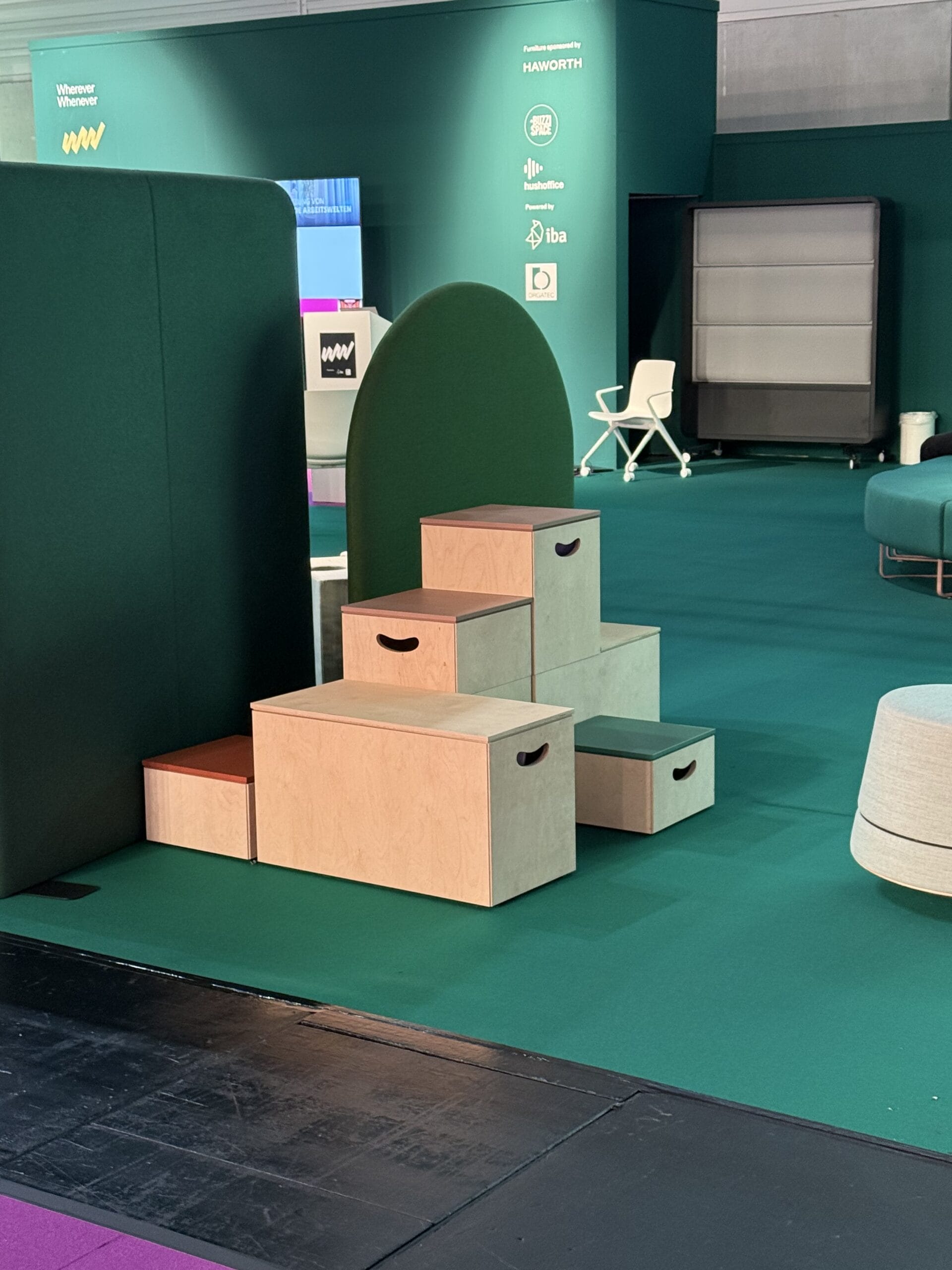
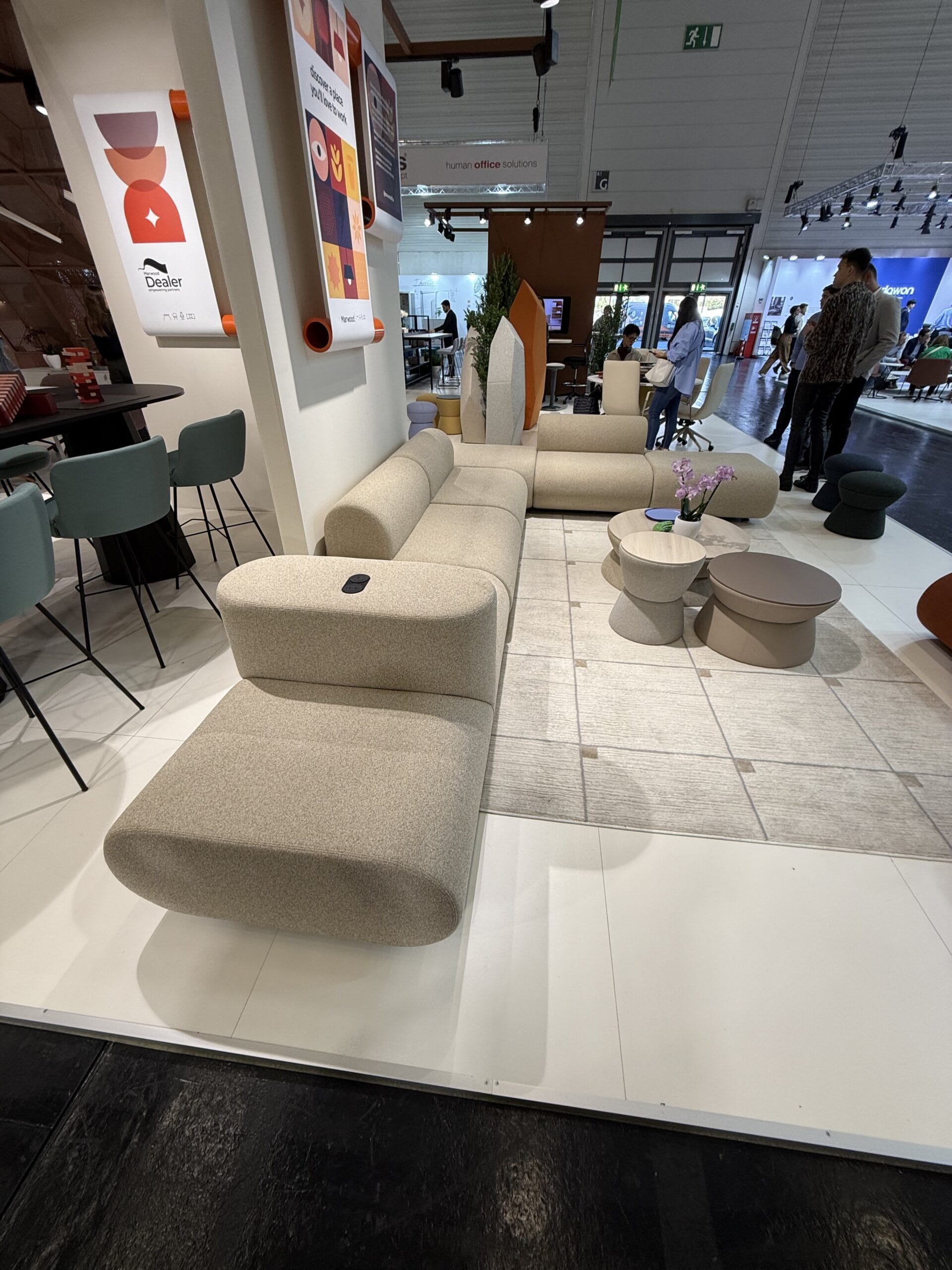
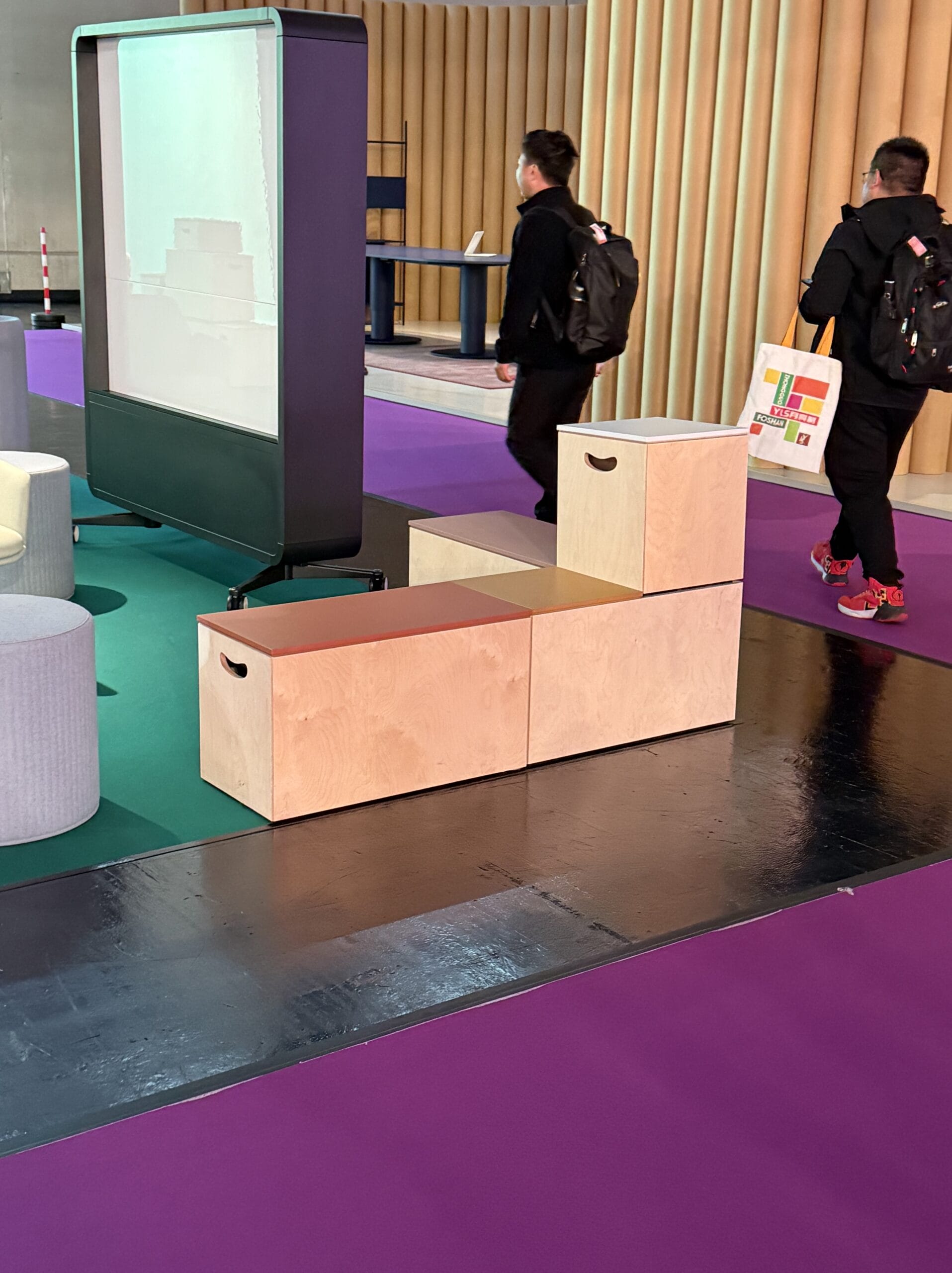
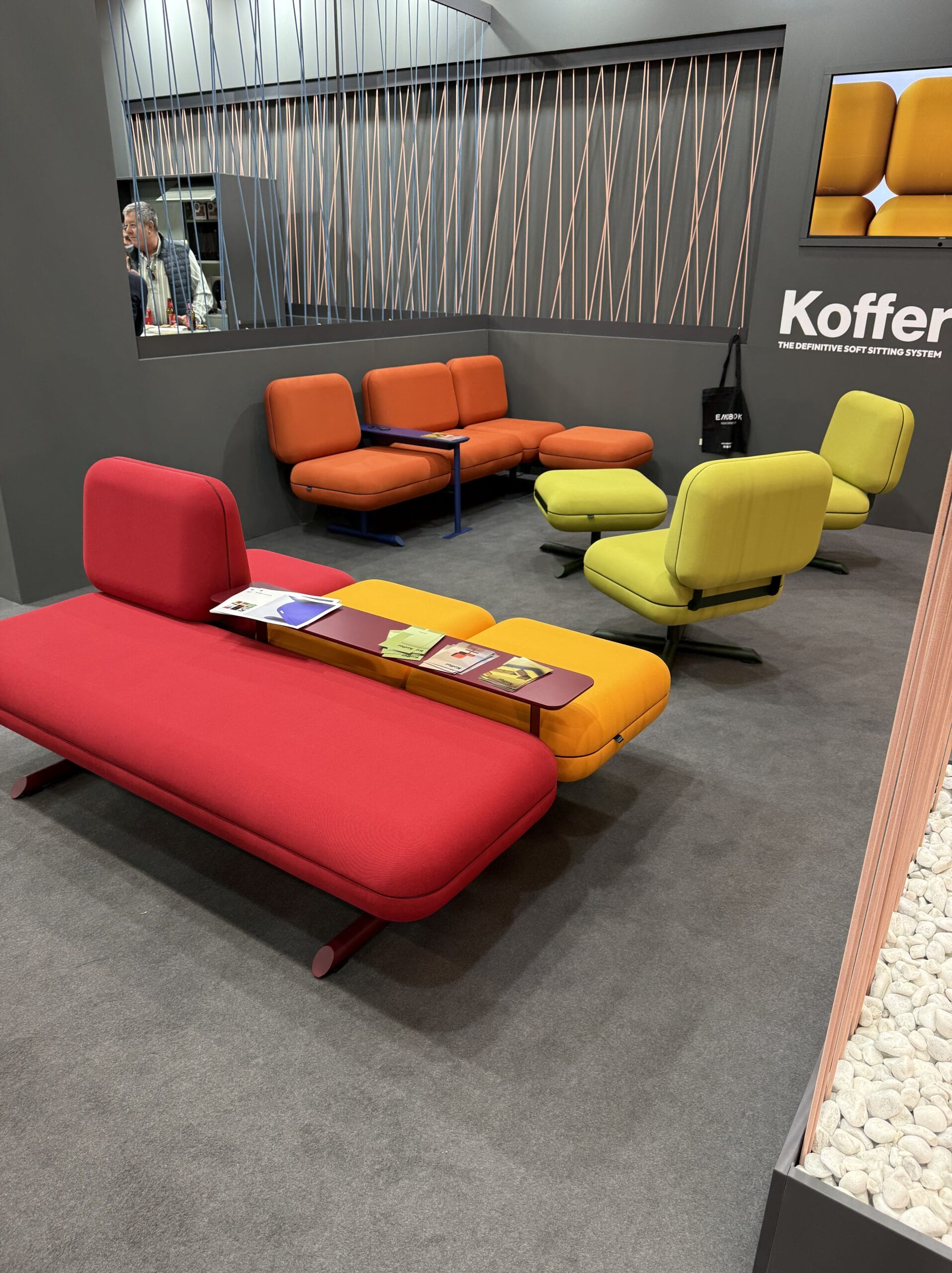
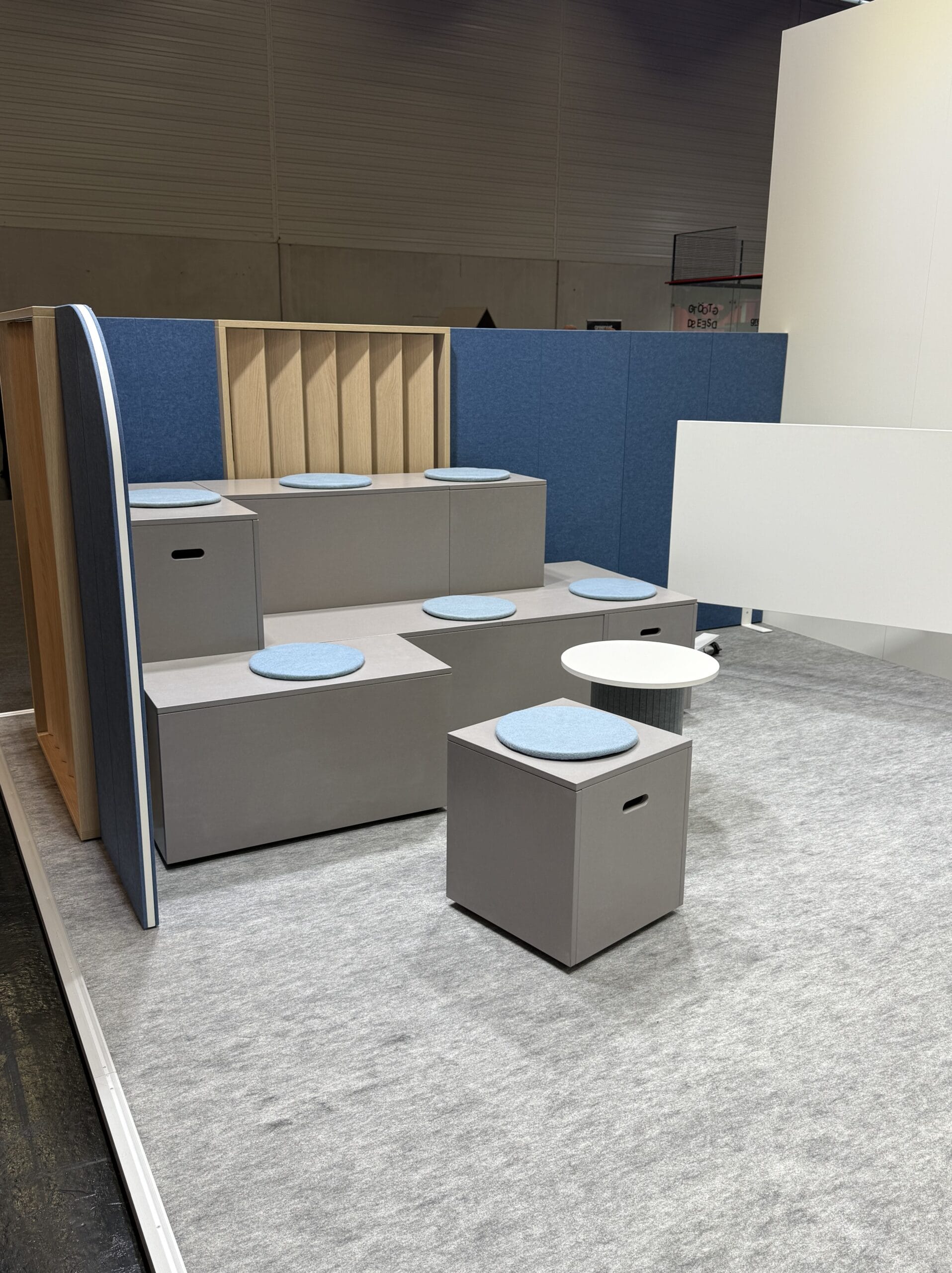
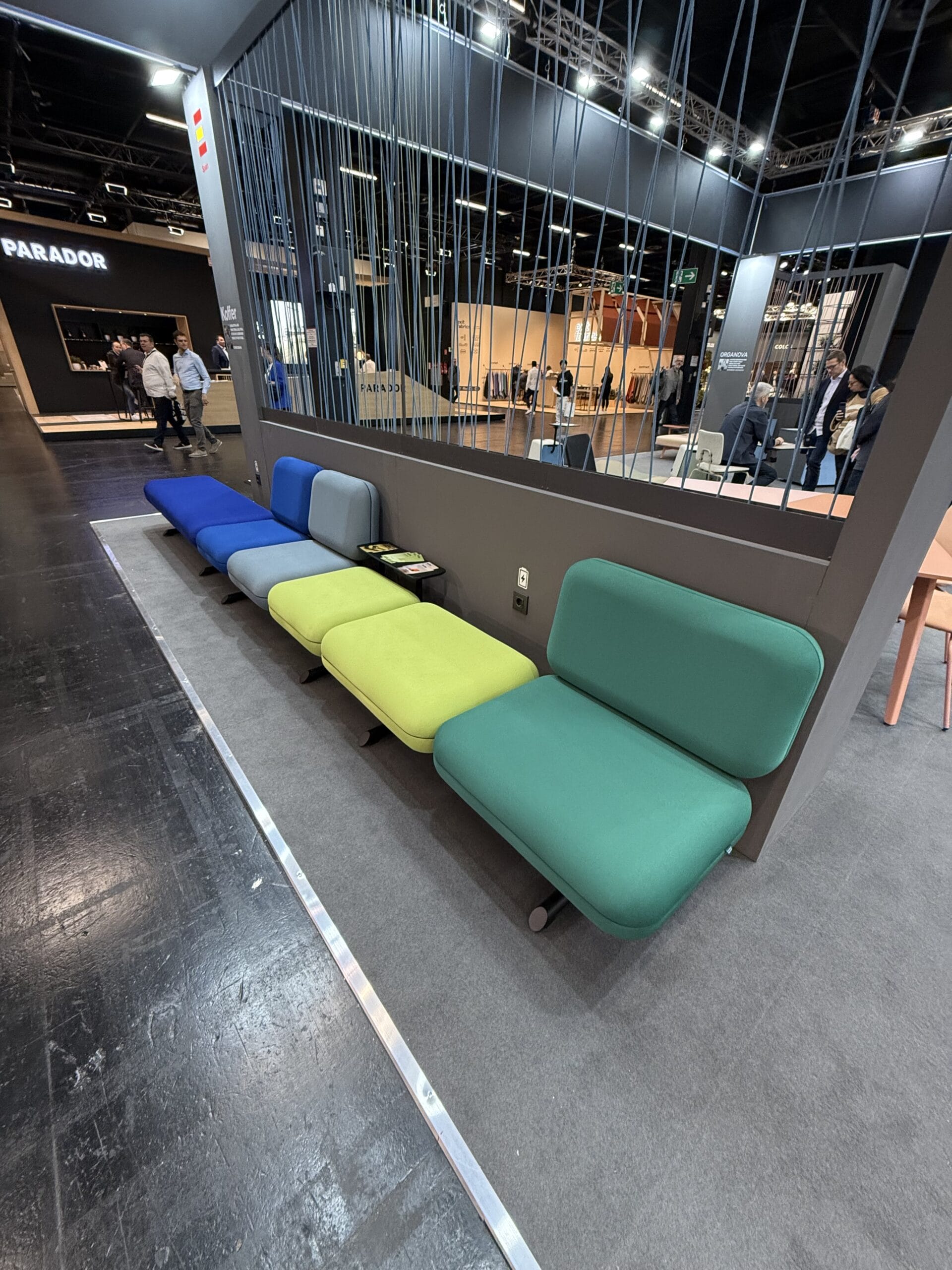
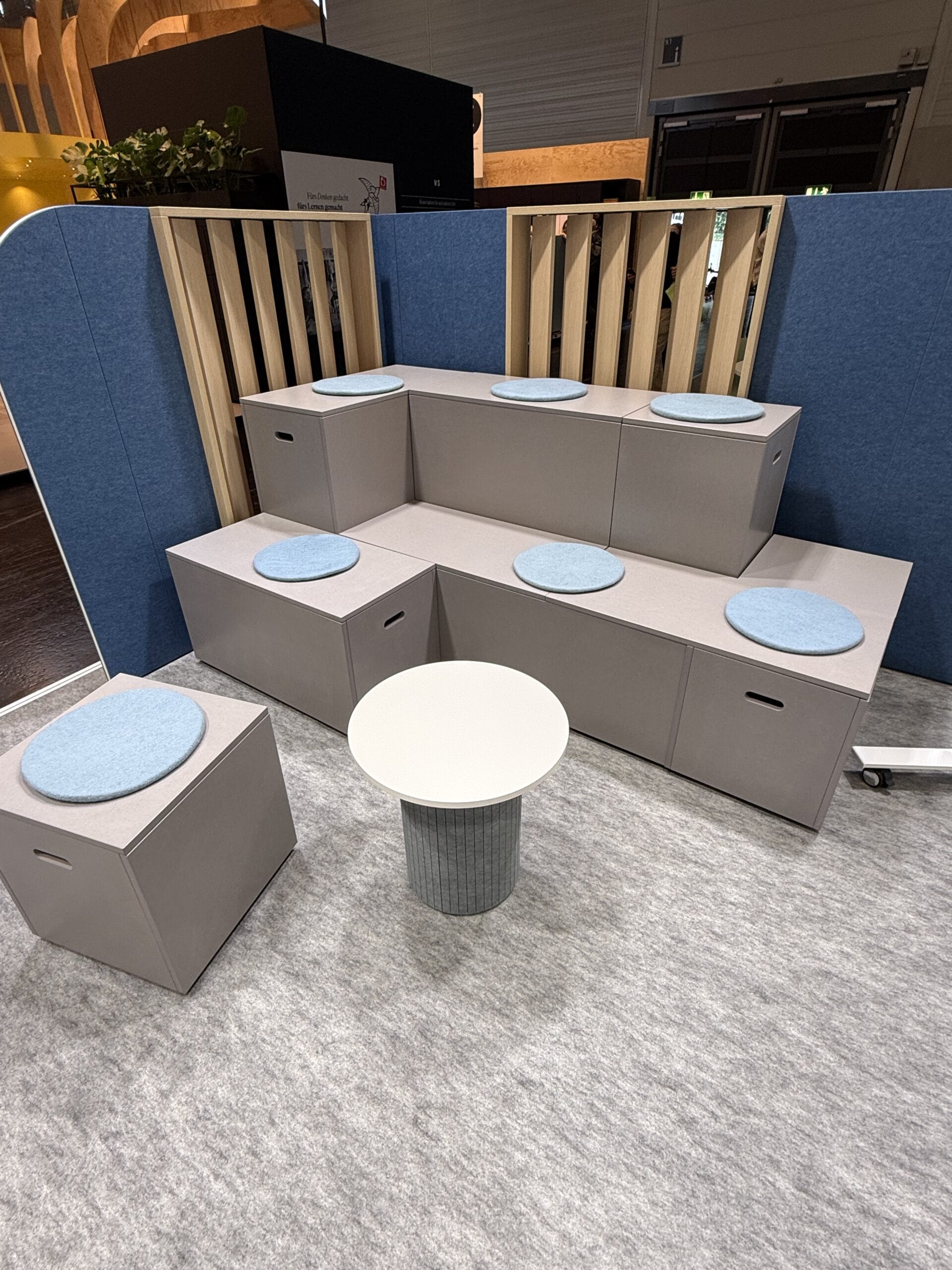
2. Indoor-outdoor harmony is more important than ever
In Australia, indoor-outdoor living isn’t just a design trend — it’s a way of life. Whether it’s homes or workplaces, we love spaces that connect us to nature. This idea is reinforced by biophilic design, a principle that integrates natural elements into built environments to enhance well-being, creativity, and productivity.
At the ORGATEC fair, biophilic design took centre stage, particularly in European settings like Germany, where long winters limit outdoor time. These principles bring nature indoors, offering workers a refreshing connection to the outdoors even during months when they can’t fully enjoy it.
Here, the approach is slightly different. We’re fortunate to have easy access to the outdoors year-round, but the desire to bring natural elements into our offices remains strong. It’s rare to find an Aussie workplace that doesn’t embrace some form of biophilic design — whether it’s indoor plants, natural materials, or spectacular views.
As 2025 picks up, the indoor-outdoor connection will only intensify. Expect to see:
- Outdoor furniture making its way indoors for a relaxed yet functional vibe.
- Tables with built-in planters creating greenery-filled workspaces that feel alive and inspiring.
- A mix of materials like wood, plastic, metals, fabrics, and plants, blending textures and tones to reflect nature’s diversity.
- Integrated power and lighting ensure these natural spaces are as practical as they are beautiful.
Biophilic design isn’t just about aesthetics; it’s about improving workplace well-being, reducing stress, and creating environments where people want to work. These design trends will shape offices in a way that feels both global and uniquely local.
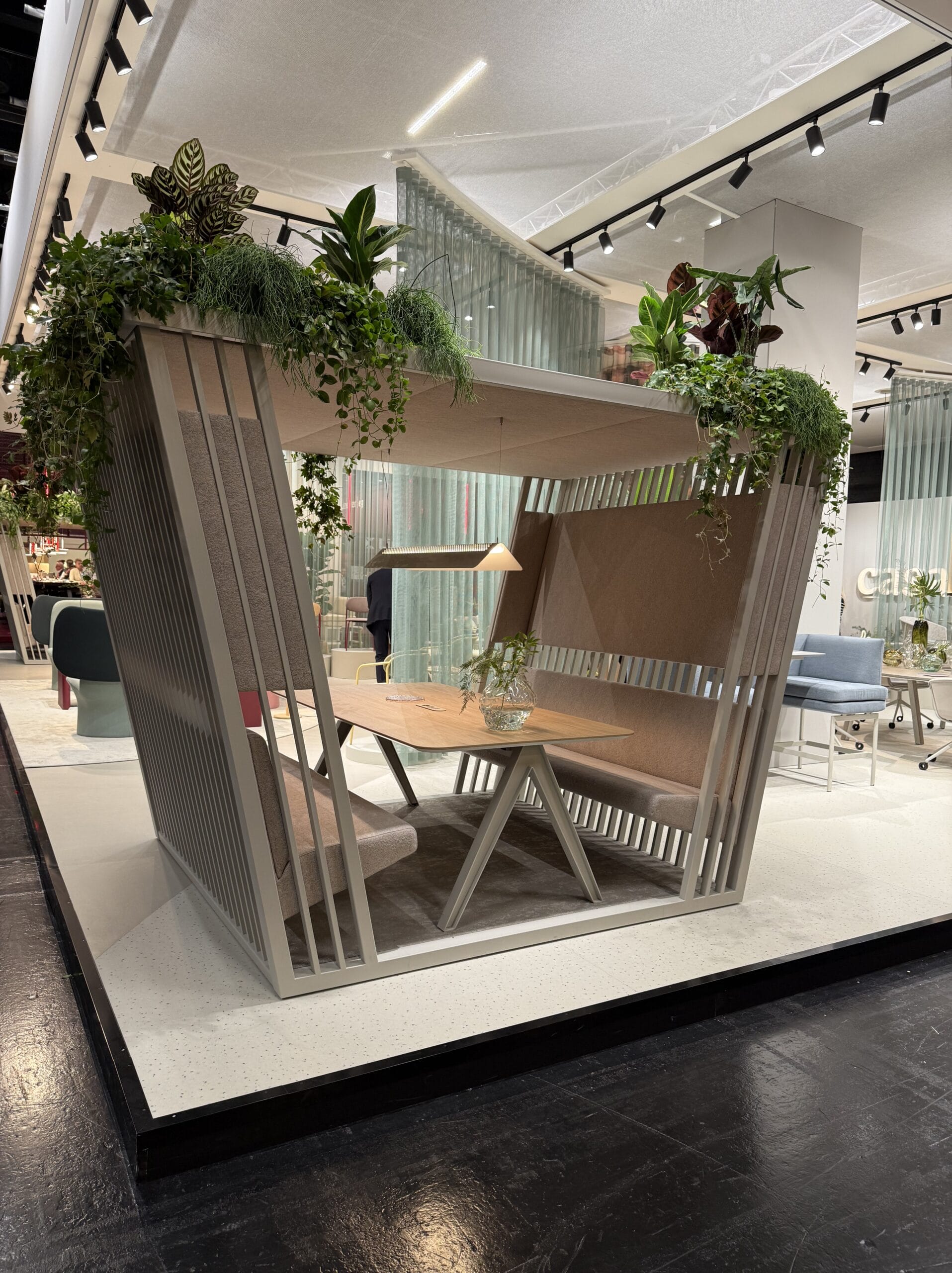
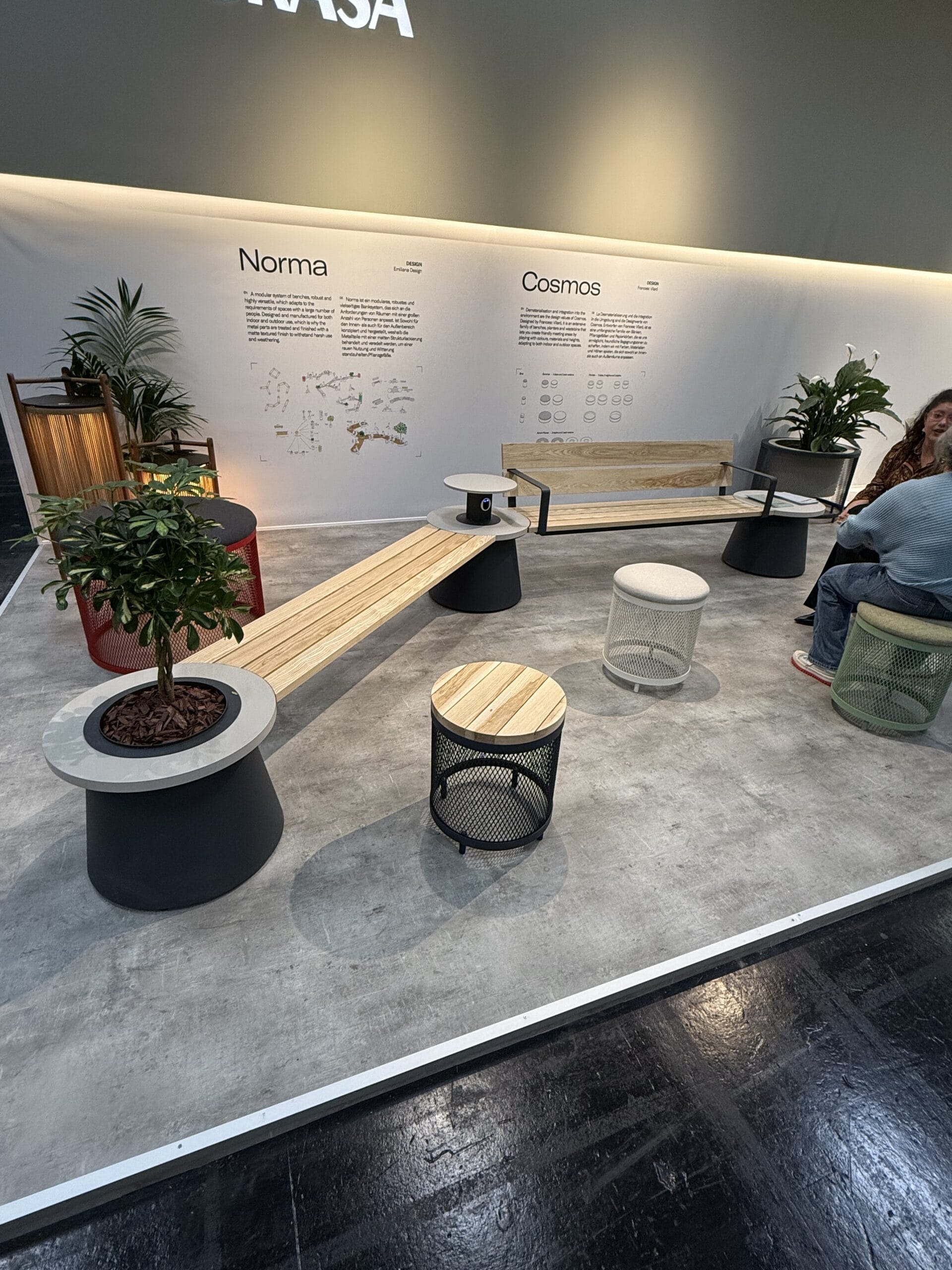
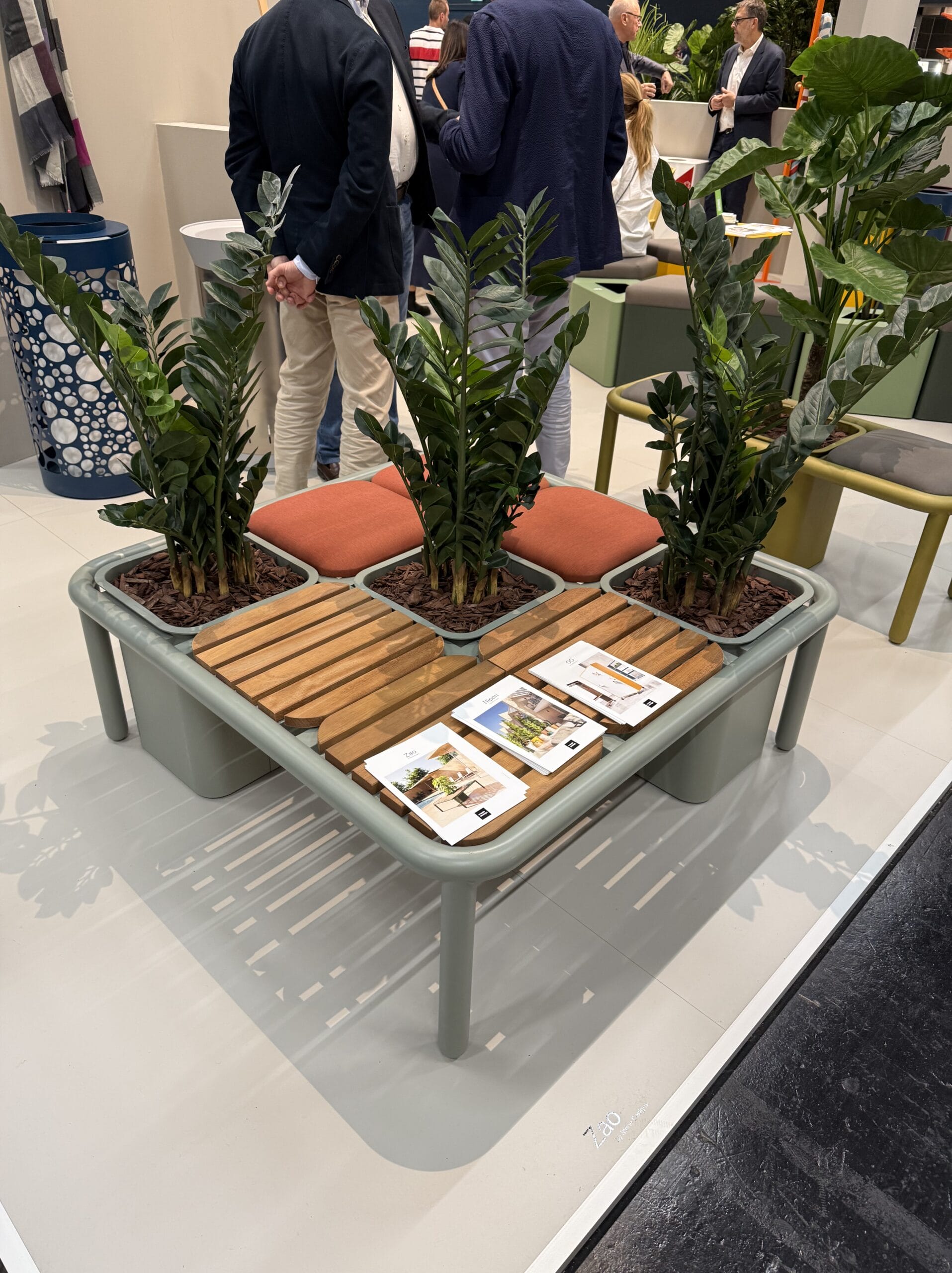
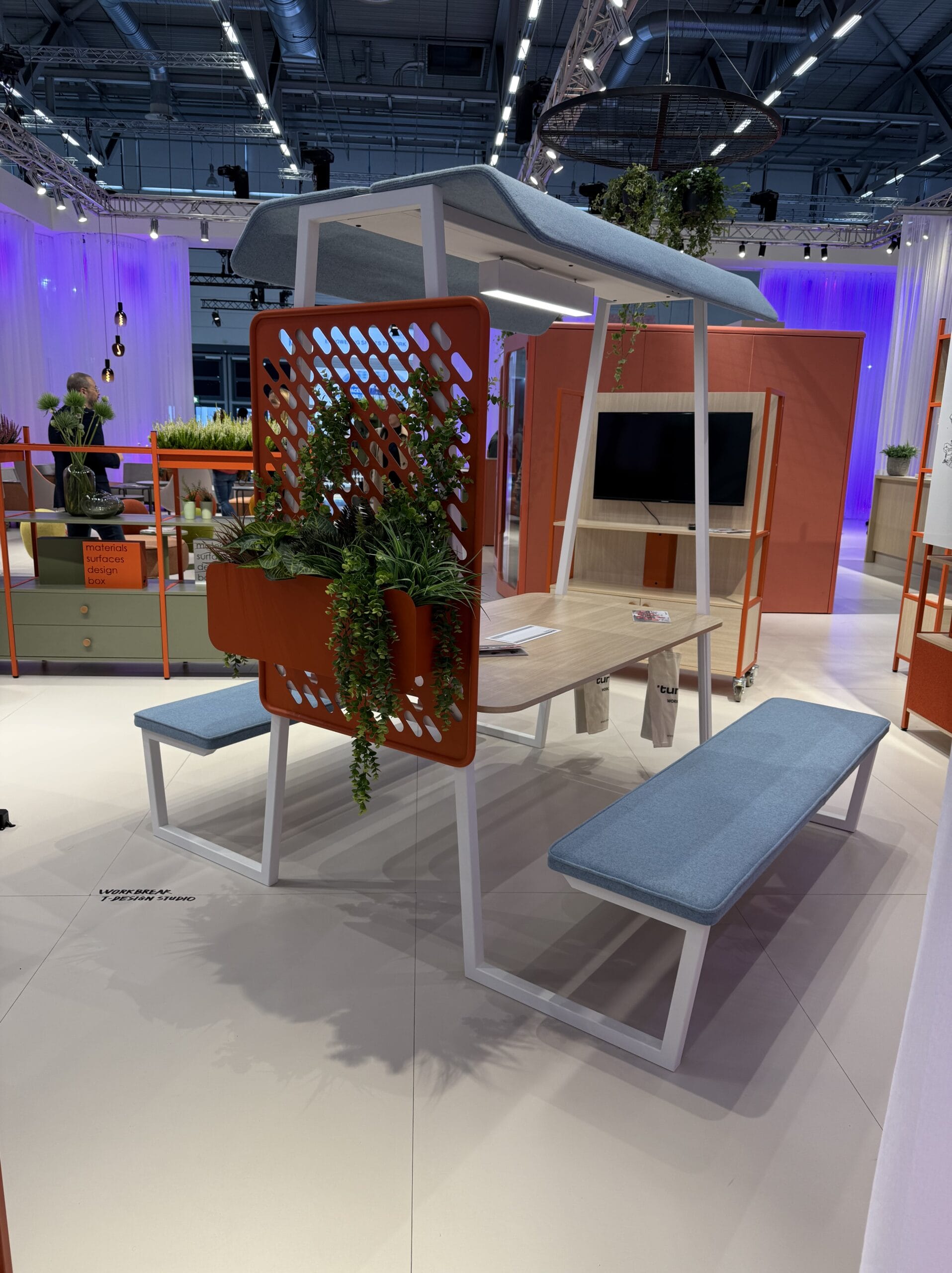
3. Office furniture that supports technology-driven workspaces
Technology continues to shape the way we work, and office design trends in 2025 are no exception. At ORGATEC, the focus wasn’t just on products but on how technology is being integrated to create smarter, more adaptive workplaces.
As our Product Manager, Adam Tipping, explains:
"We’re seeing modular pieces of furniture with tech built in to help optimise space and adapt to the tasks or learning required throughout the day. Technology is also enhancing the buying and testing experience, allowing users to virtually explore how products will work in real-world spaces before making decisions."
Expect to see:
- Integrated connectivity tools — think wireless charging pads and smart features that support hybrid working.
- Modular furniture equipped with tech, allowing workspaces to adapt seamlessly to changing needs throughout the day.
- Interactive experiences during the purchasing process, using augmented reality to design and visualise furniture layouts.
In 2025, the focus isn’t on technology for the sake of it, but on integrating it in meaningful ways to improve usability, efficiency, and the overall workplace experience.
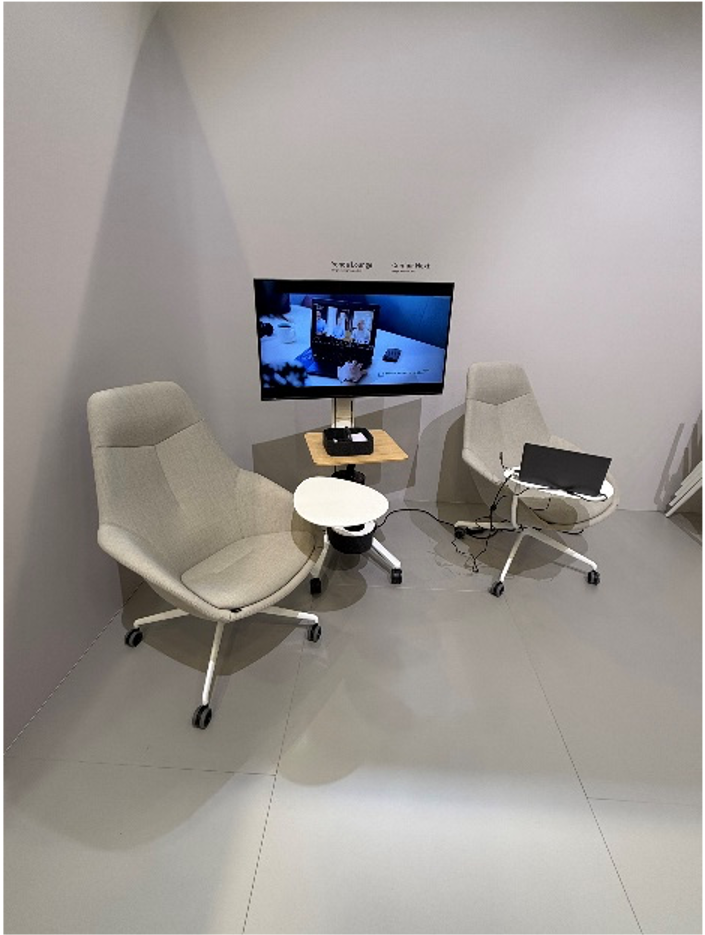
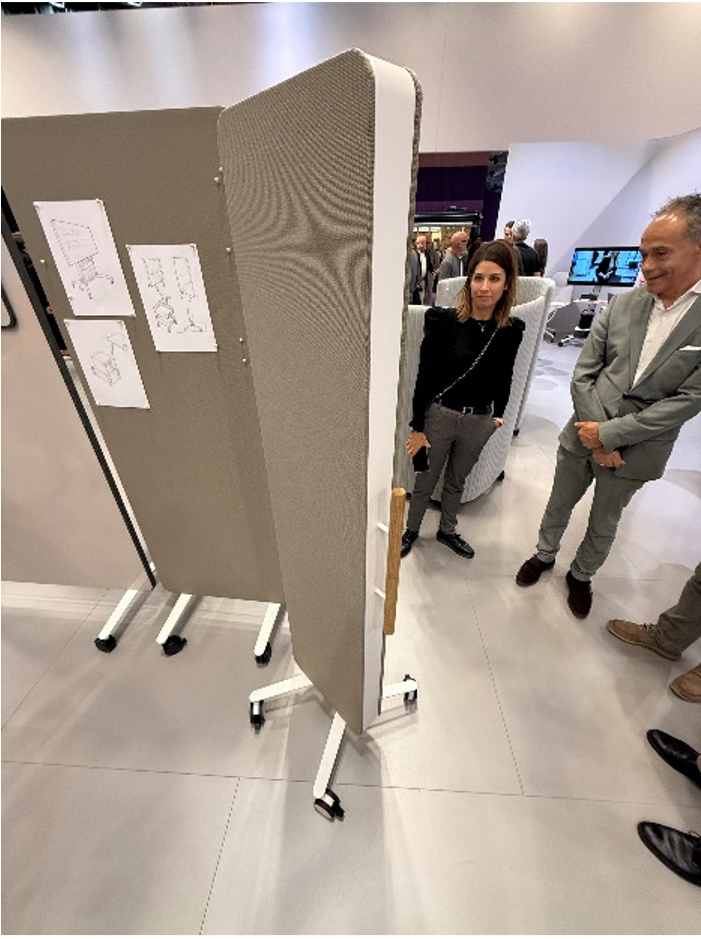
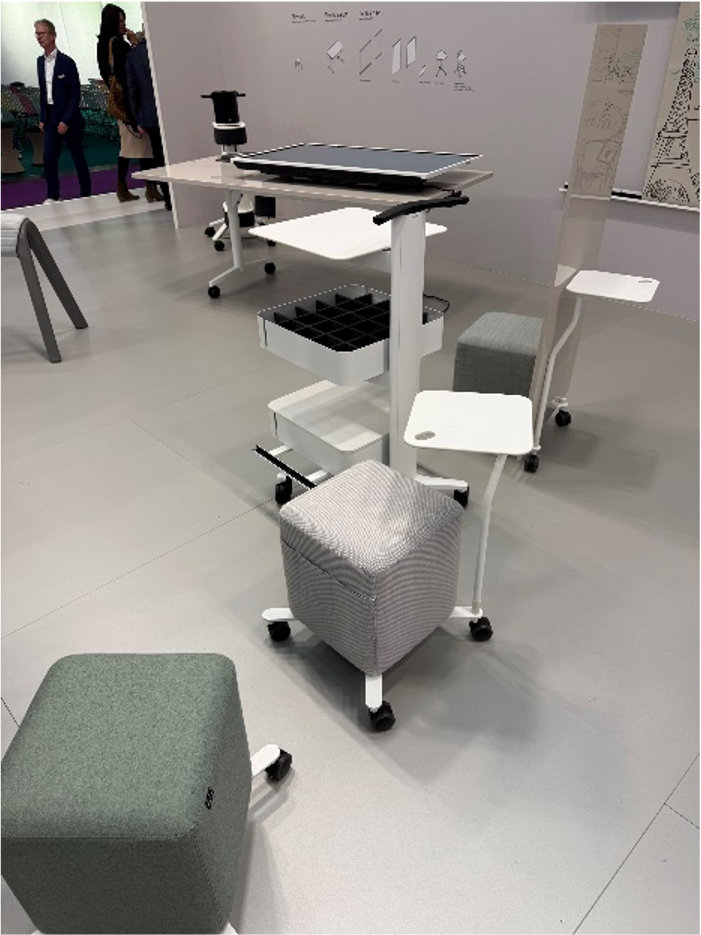
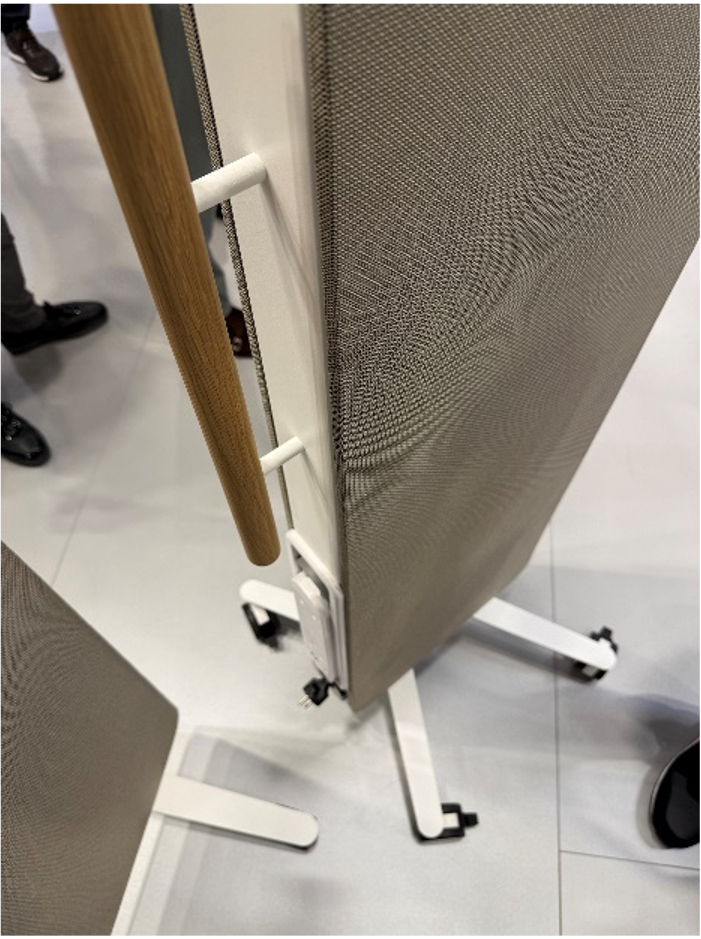
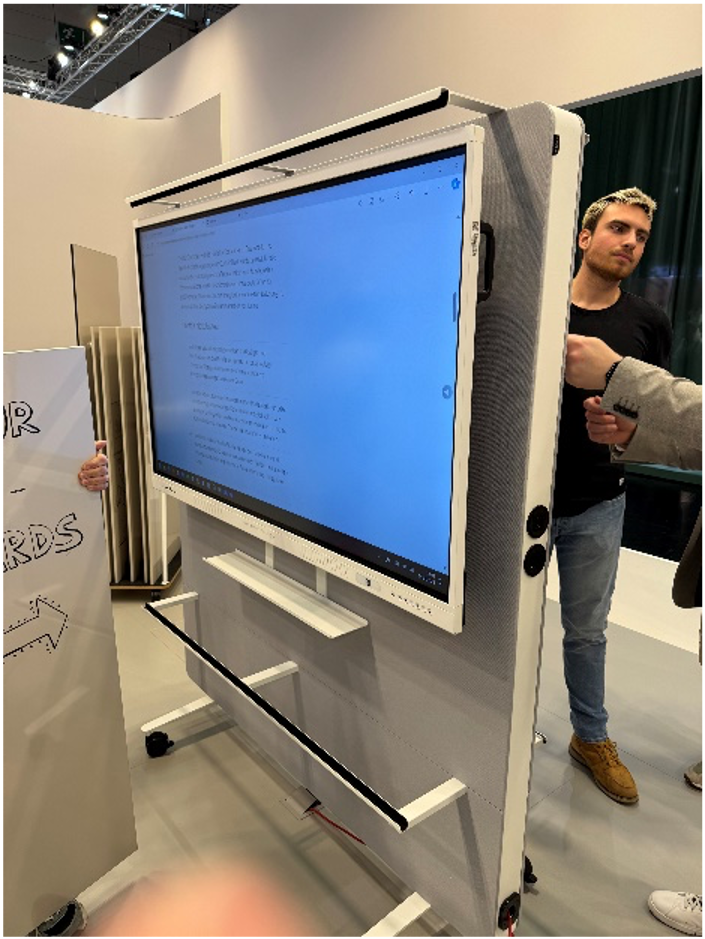
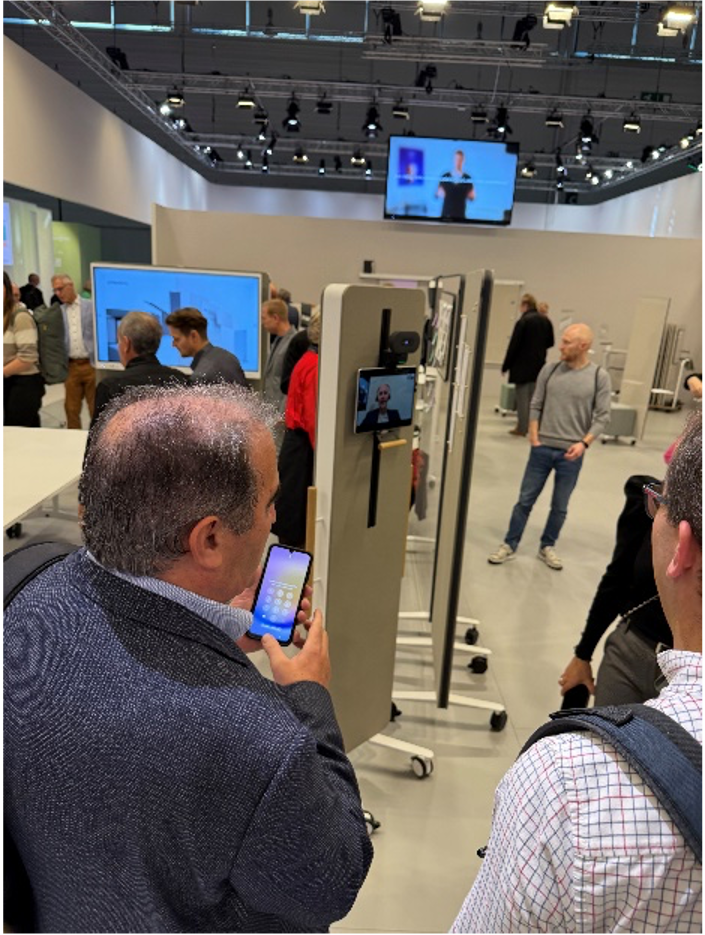
Now for the smaller office design trends that support the big three
As offices evolve, several complementary trends are emerging alongside the major design innovations.
1. Welcome back, wood!
Once a staple of traditional office design, wood is making a strong comeback in 2025, bringing warmth, versatility, and sustainability. Its natural finishes soften spaces, complementing biophilic design elements like plants and greenery. As a timeless material, wood adds texture and supports the push for eco-conscious workplaces.
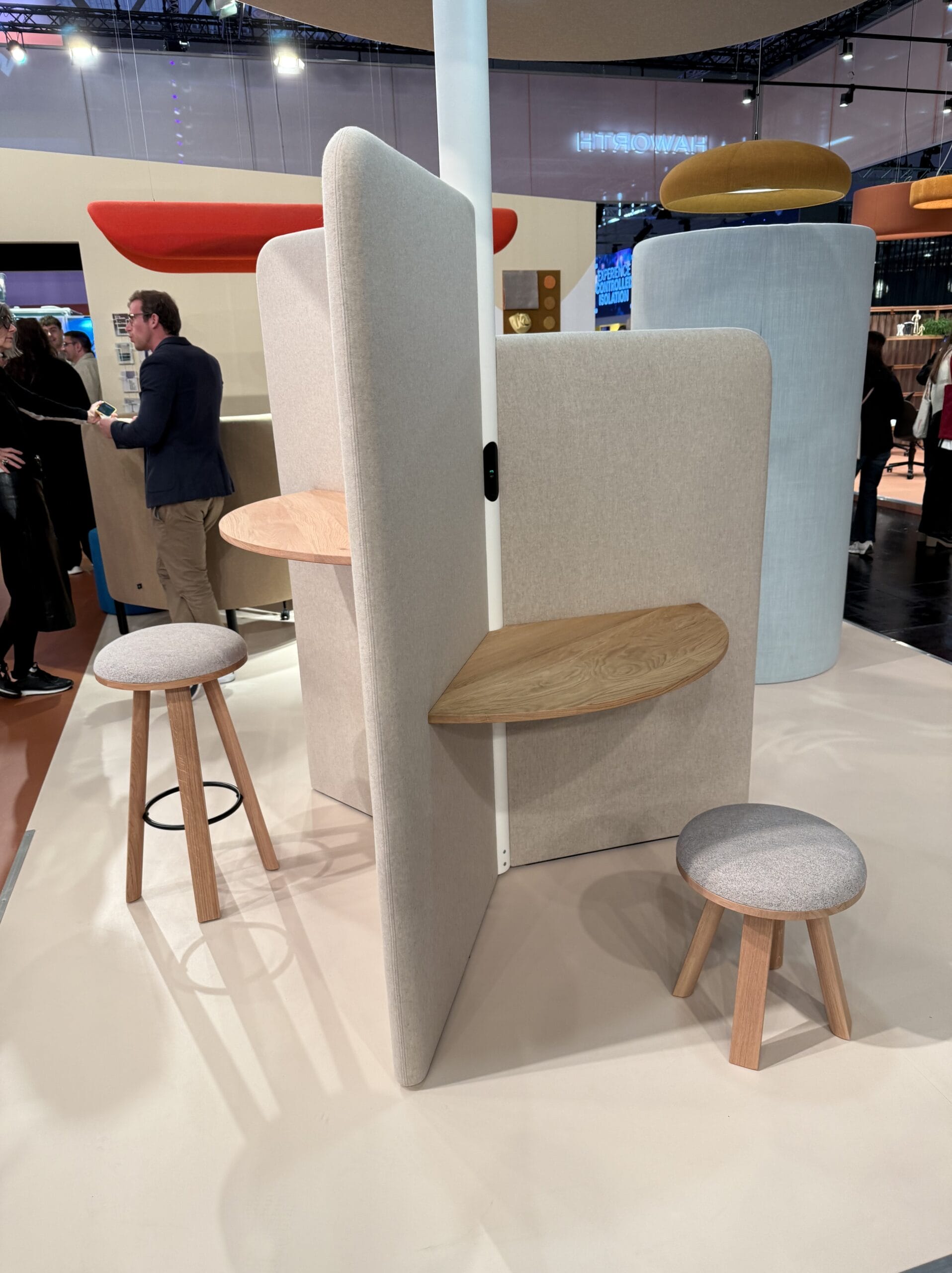
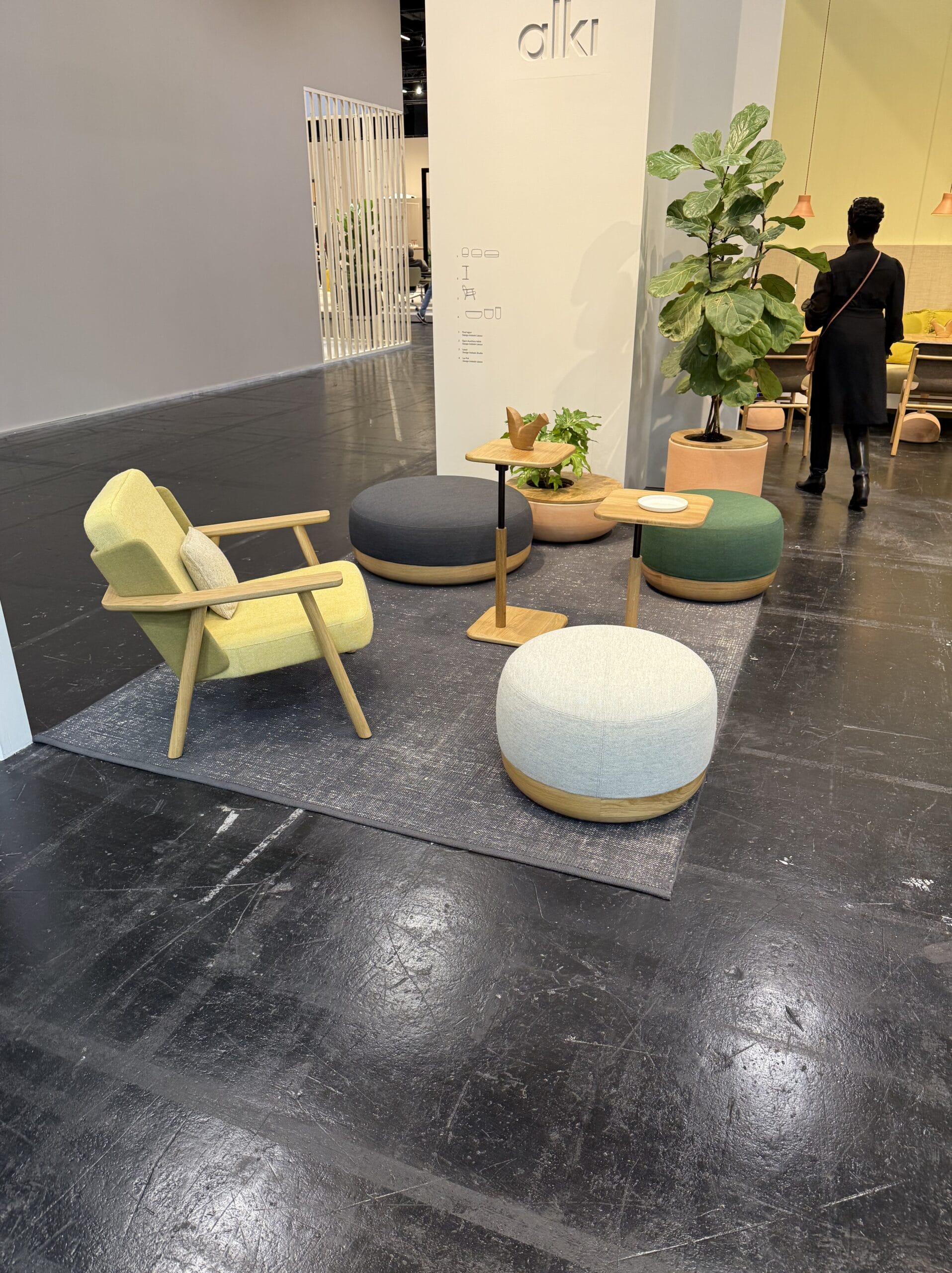
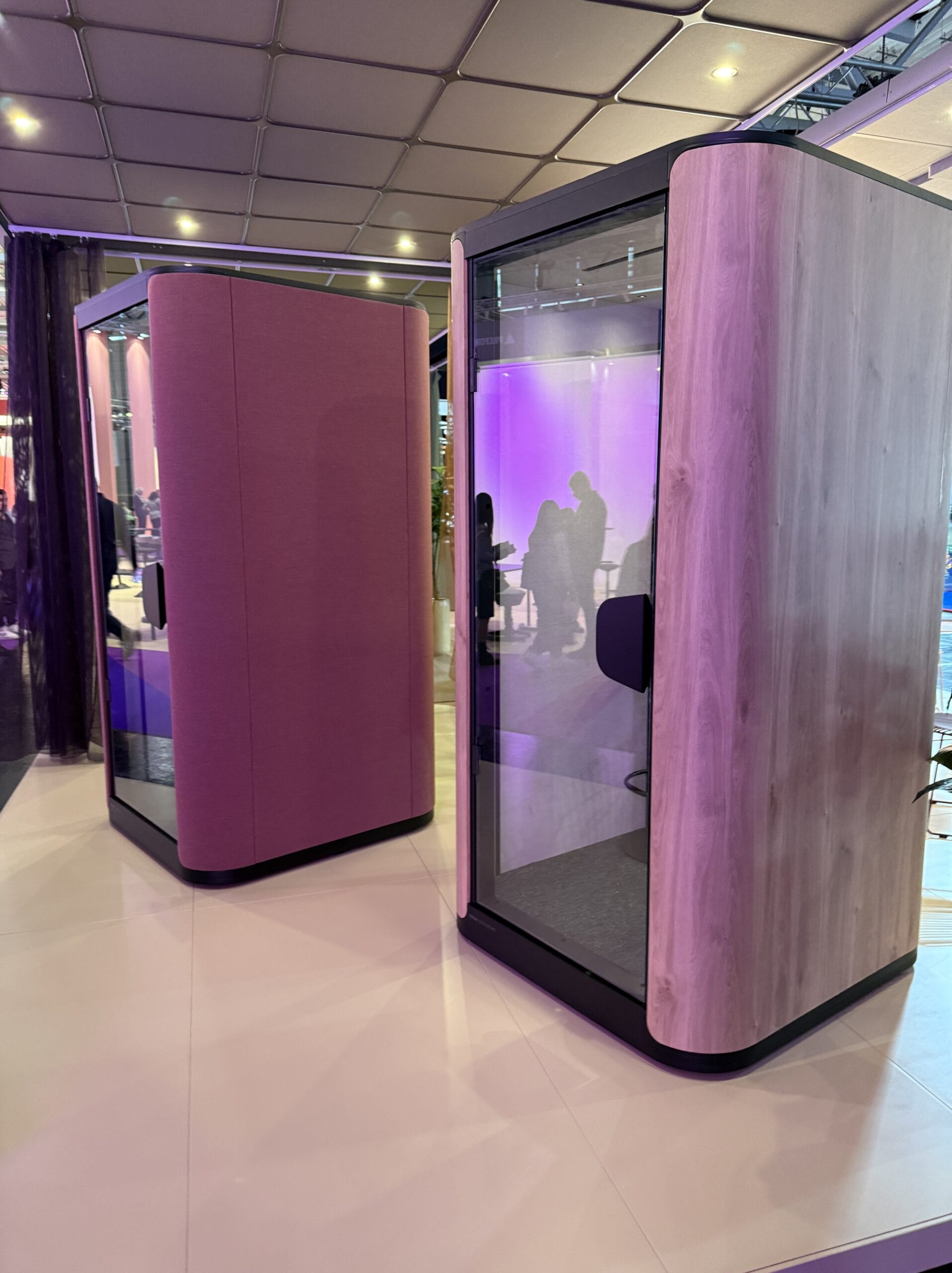
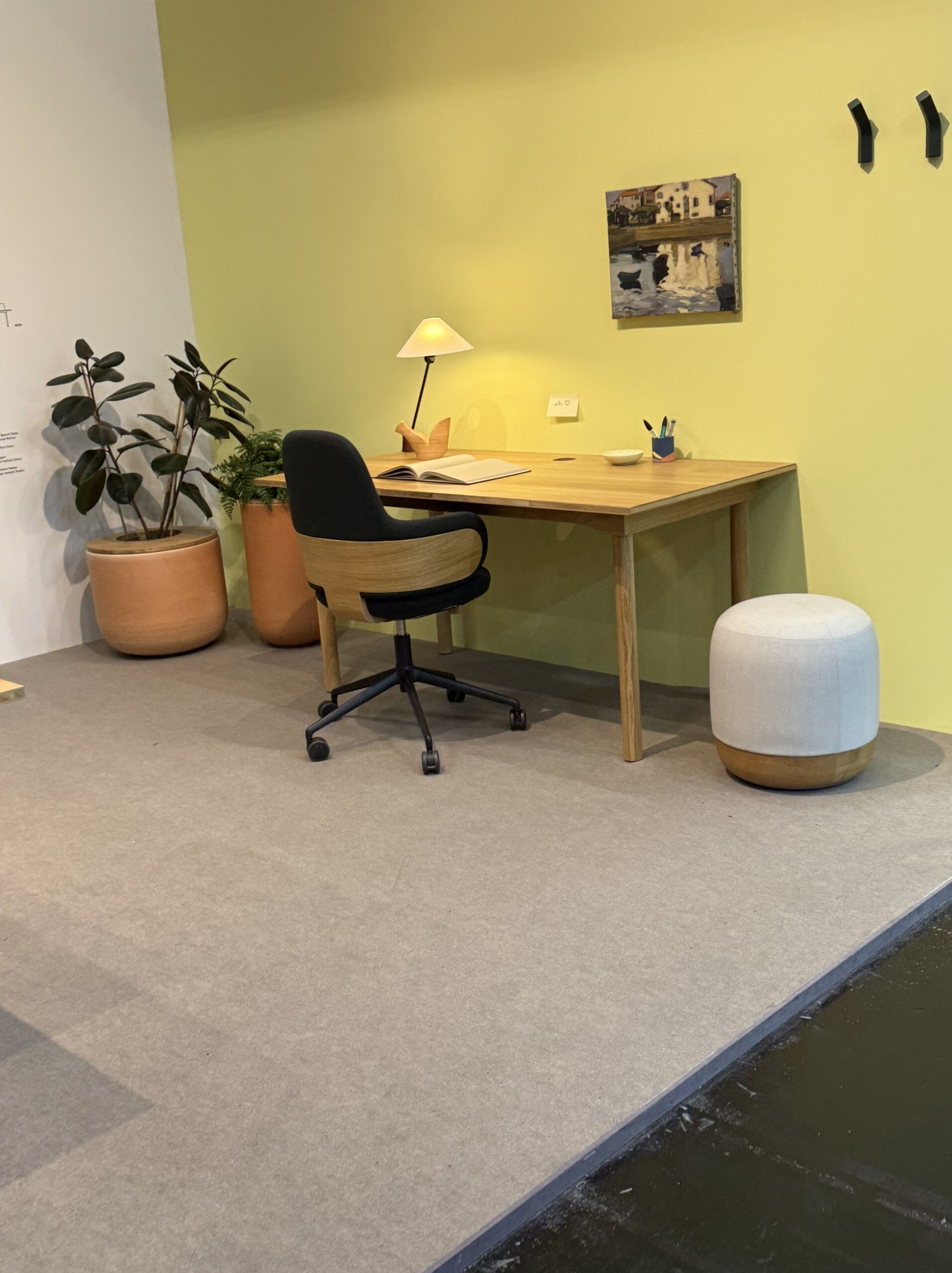
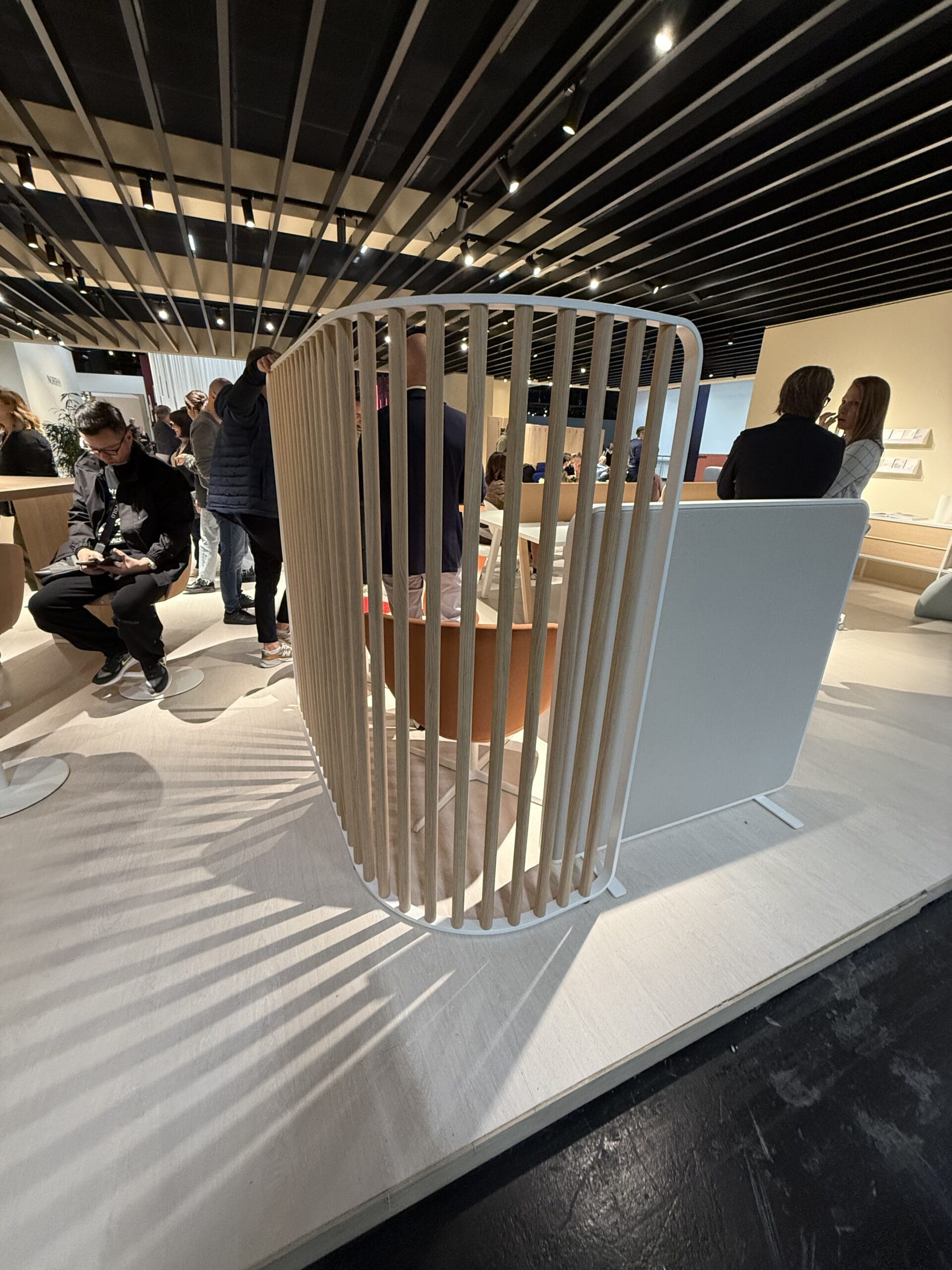
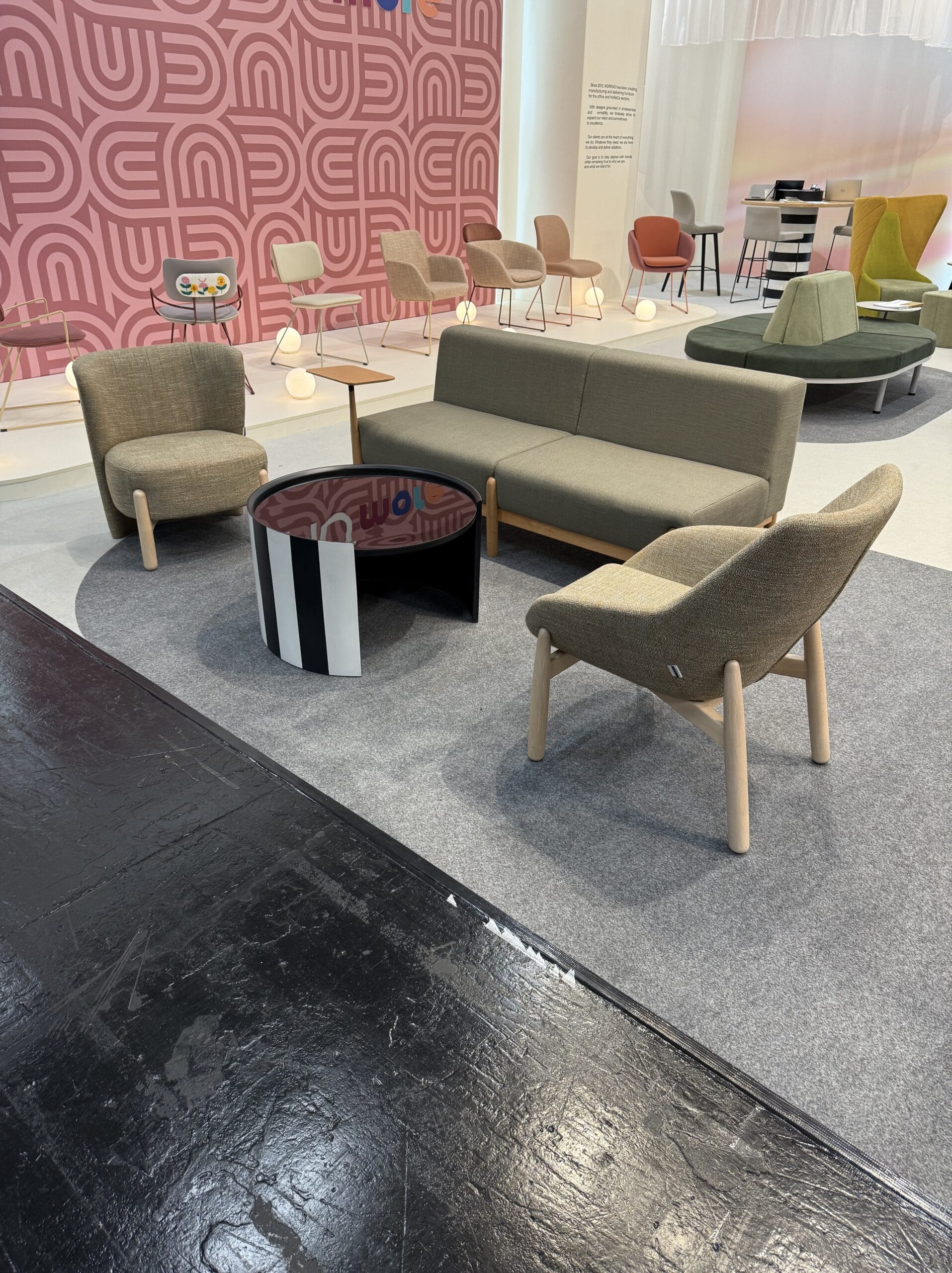
2. Sustainability is still front and centre
Sustainability remains a key focus, with biomaterials being used as alternatives for products, components, and even packaging. Many exhibitors at ORGATEC also demonstrated their commitment to eco-conscious practices by using simple, effective materials to create exhibition spaces that reinforced their sustainability messages.
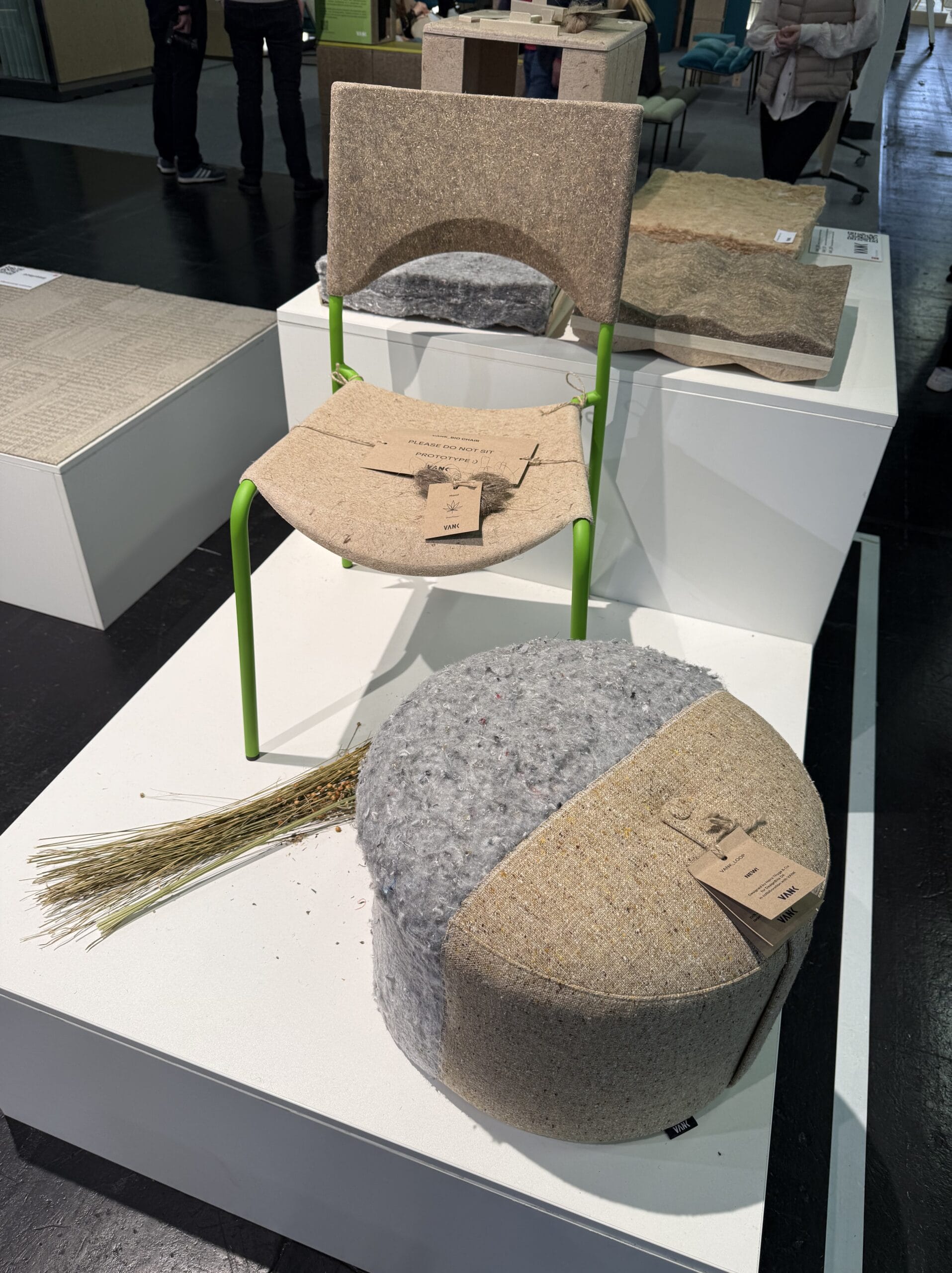
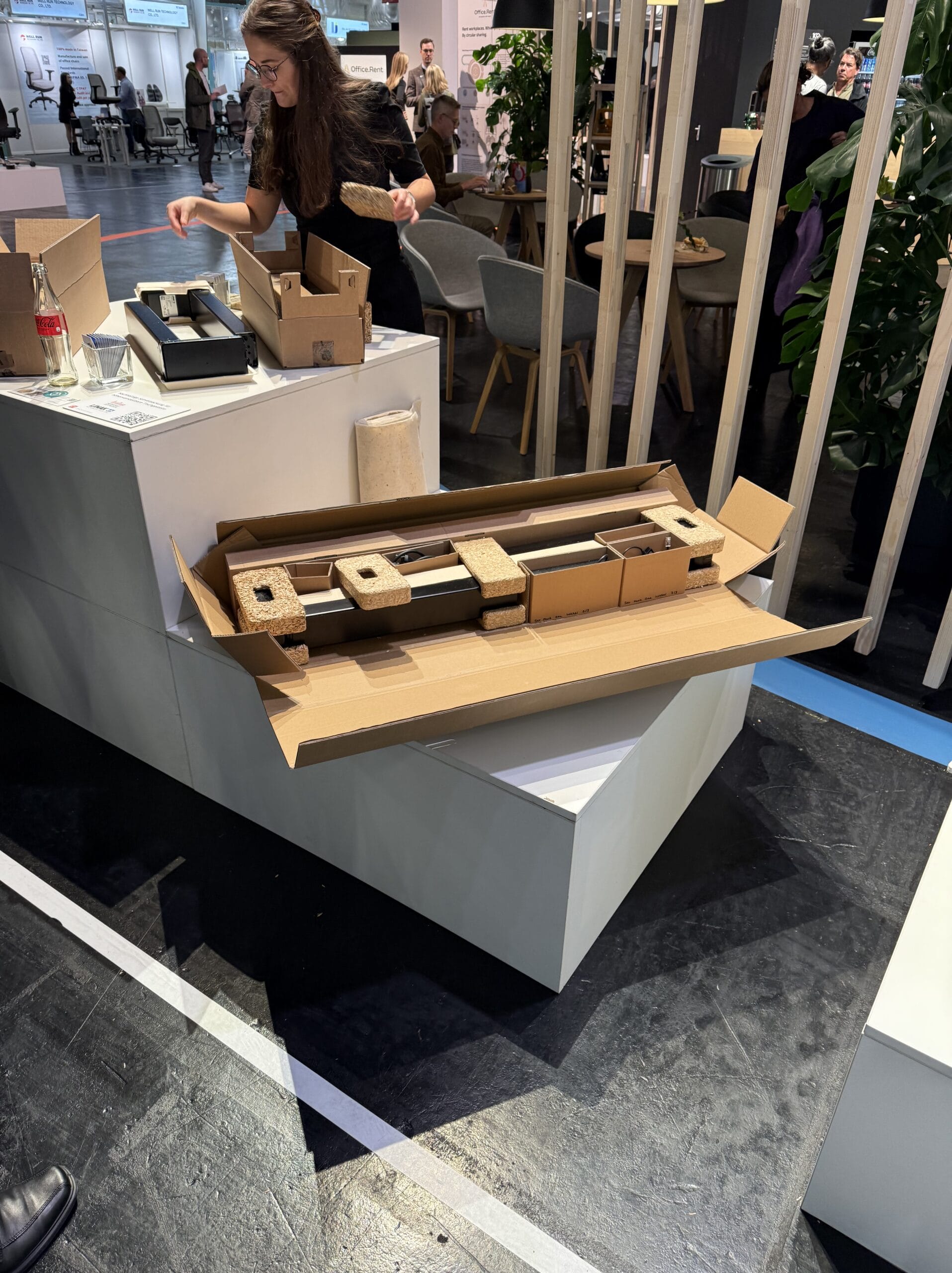
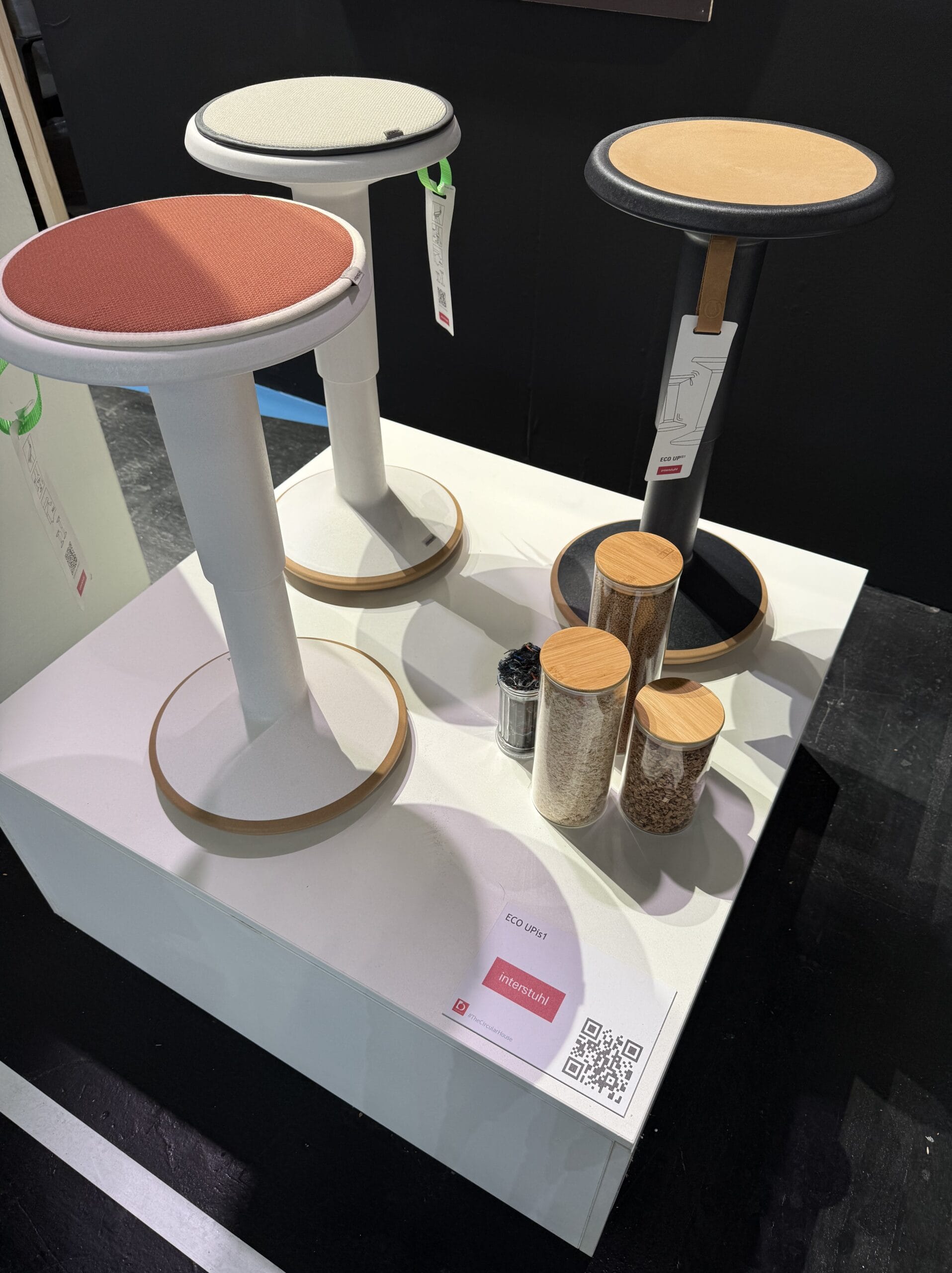
3. Creativity meets personalisation
ORGATEC showcased how personalisation is shaping modern offices. From colour-coded charts that recommend furniture tailored to worker types, to curtains doubling as acoustic partitions, designers are leaning into creativity when it comes to creating adaptable, user-focused spaces.
A standout example is the Koplus soundproof office pods distributed by Buro in Australasia. These highly customisable pods offer acoustic spaces designed for modern workplace needs.
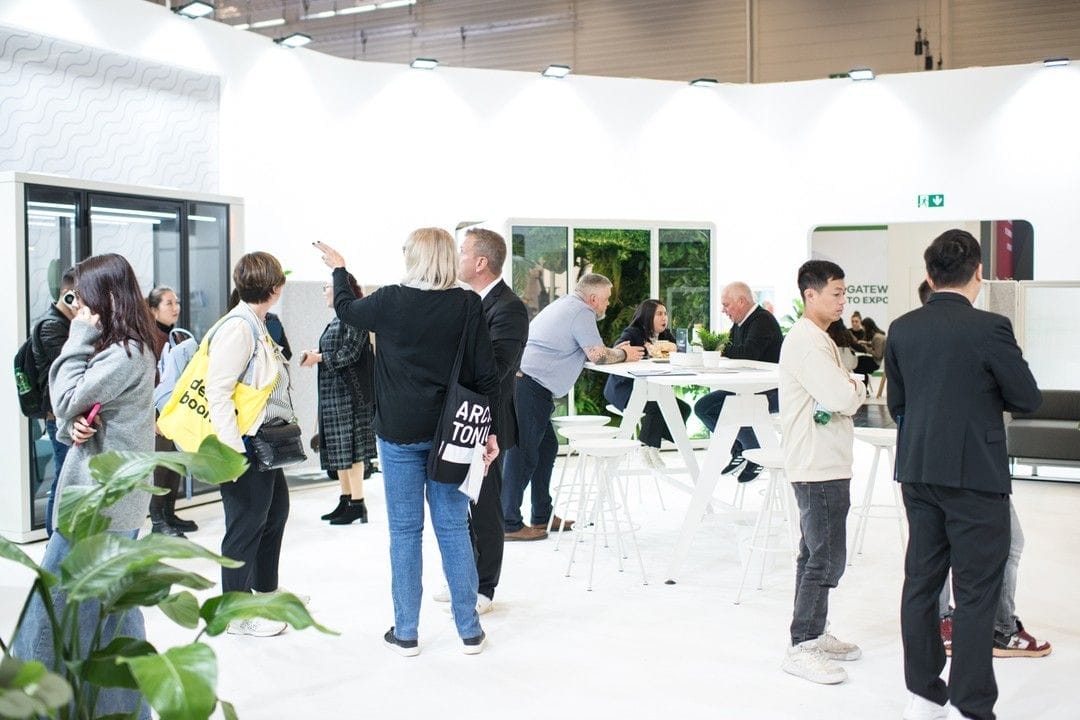
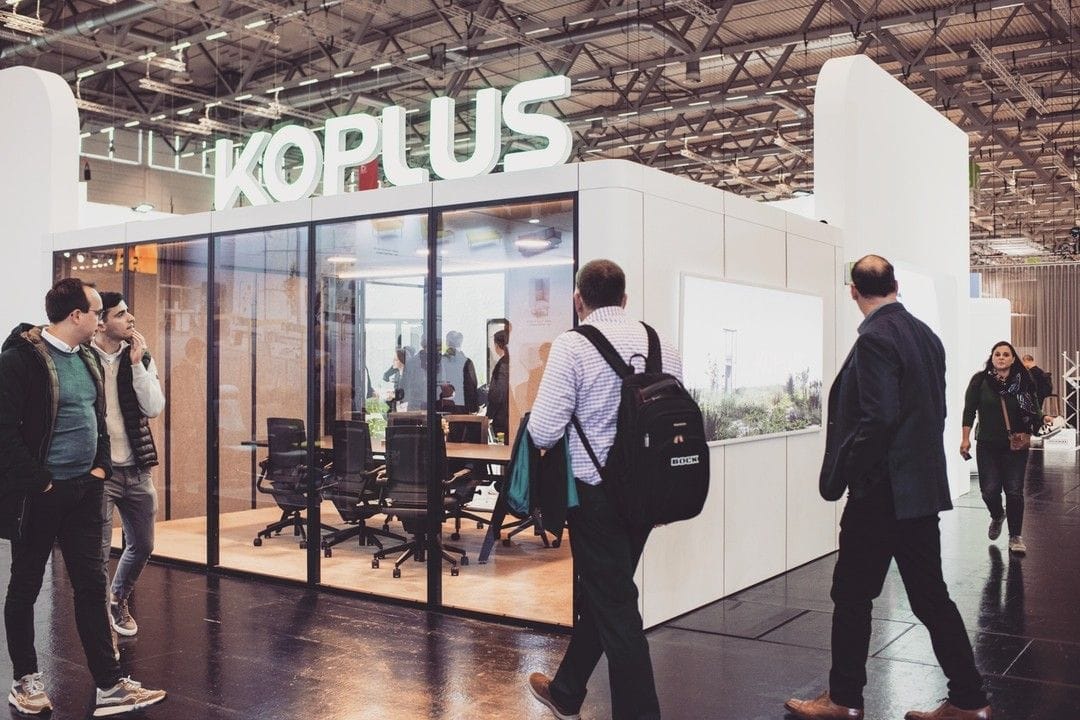
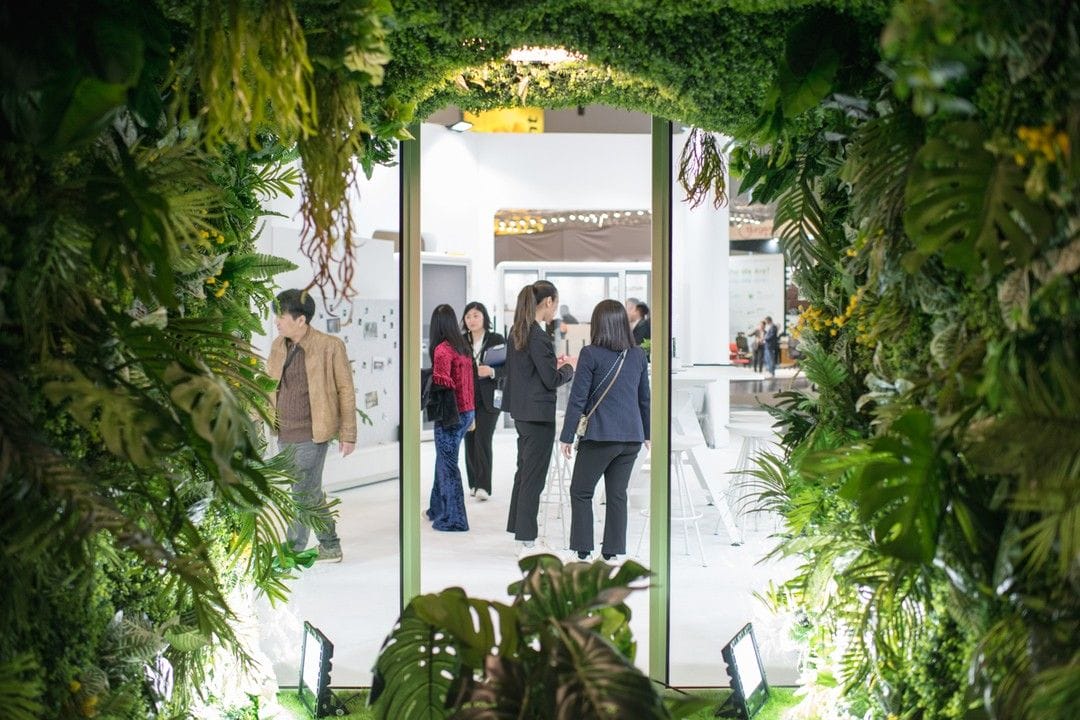
As Product Manager Adam Tipping notes:
"Developments to the Kolo and Milli series will be well-received. And the upcoming booths, set to launch soon, go beyond just meetings or calls — it offers a truly flexible acoustic space that can adapt to multiple workplace needs."
Ready to modernise your workplace?
At Buro, we’re here to help you bring the office design trends of 2025 to life with furniture that combines style, functionality, and sustainable design. Get in touch with our team today — let’s create a modern, future-ready office together.
